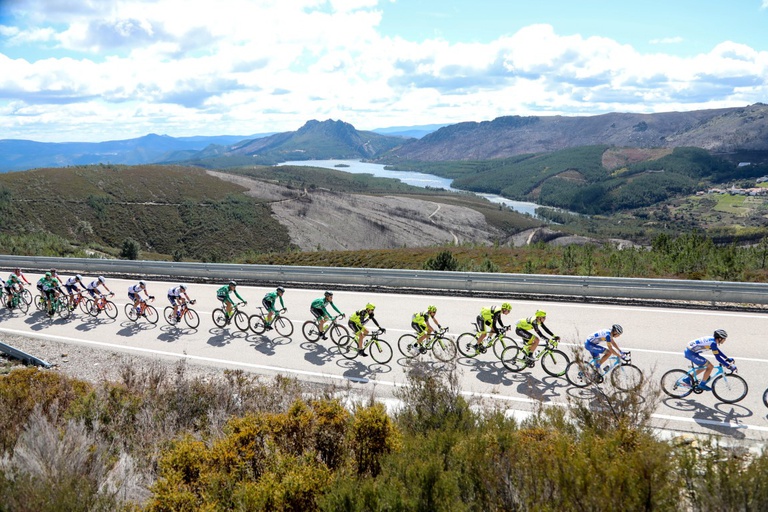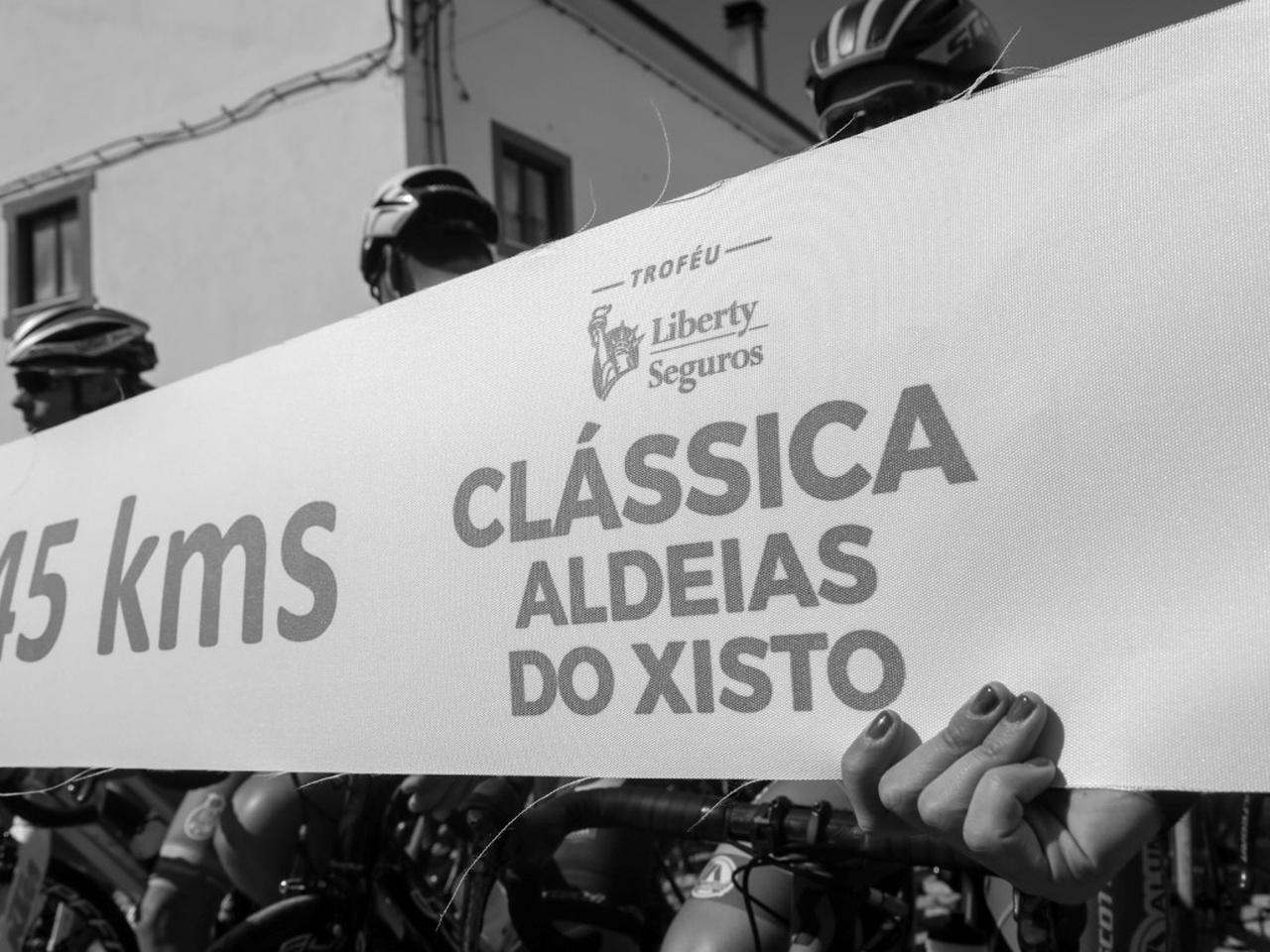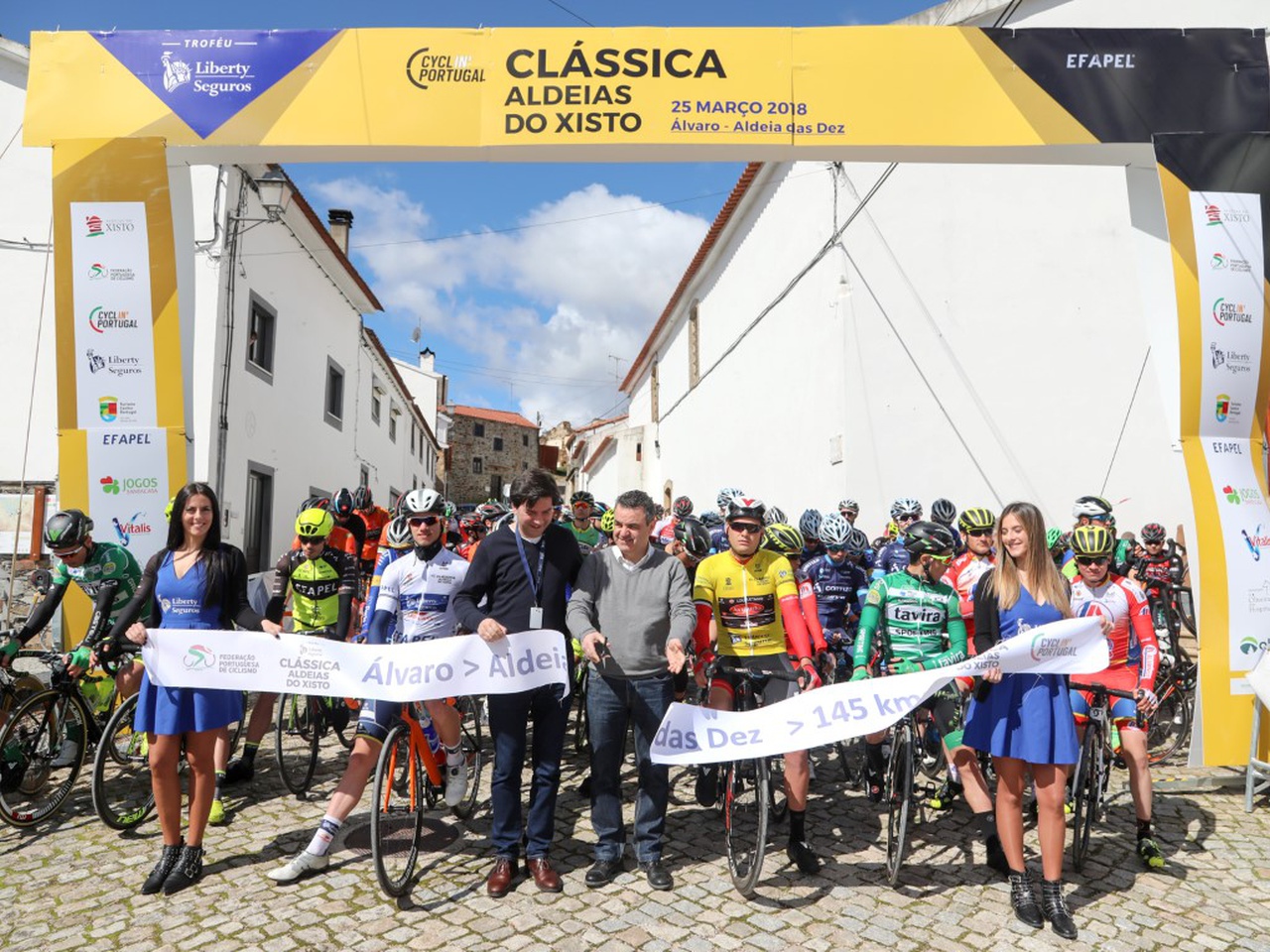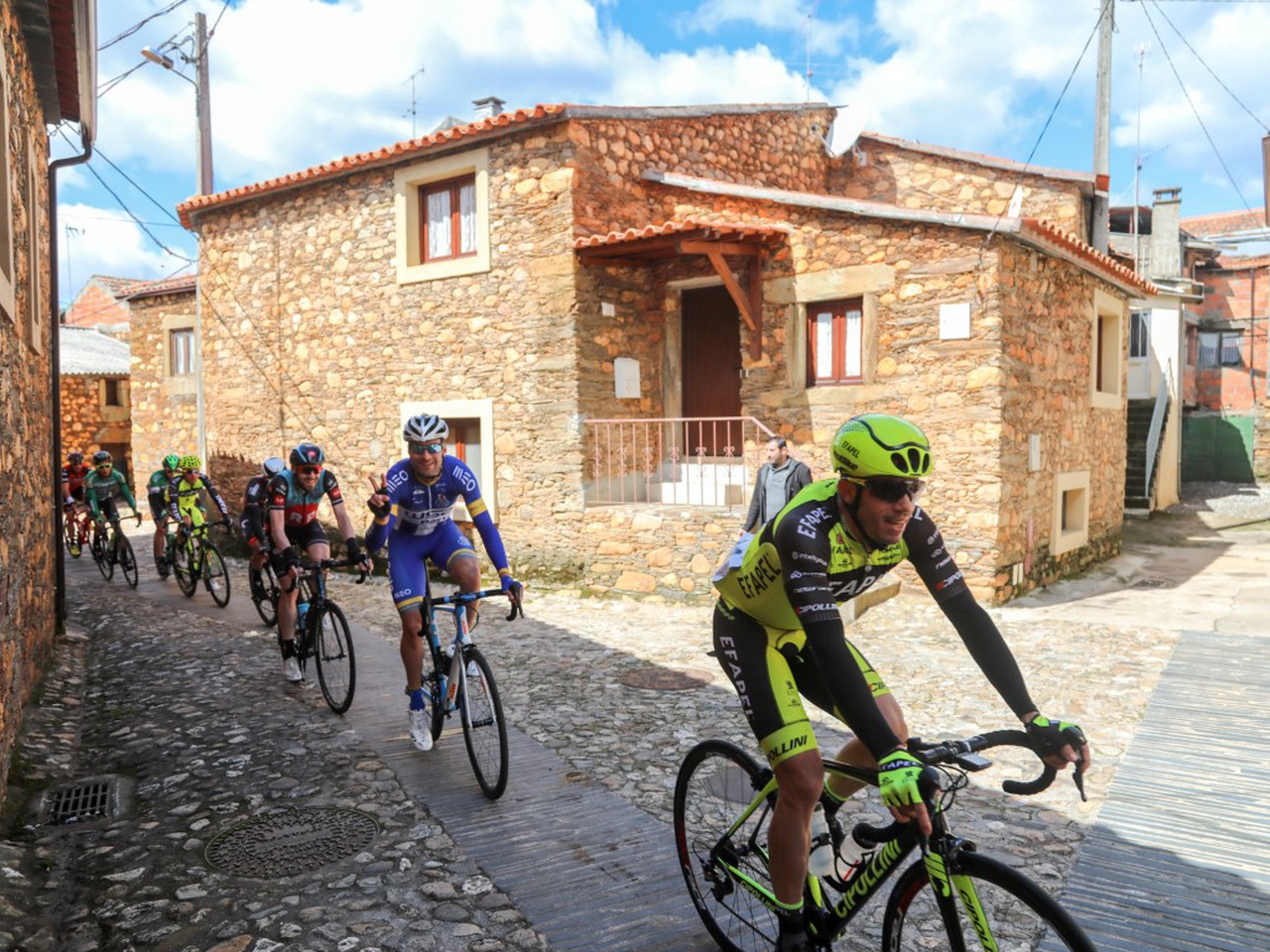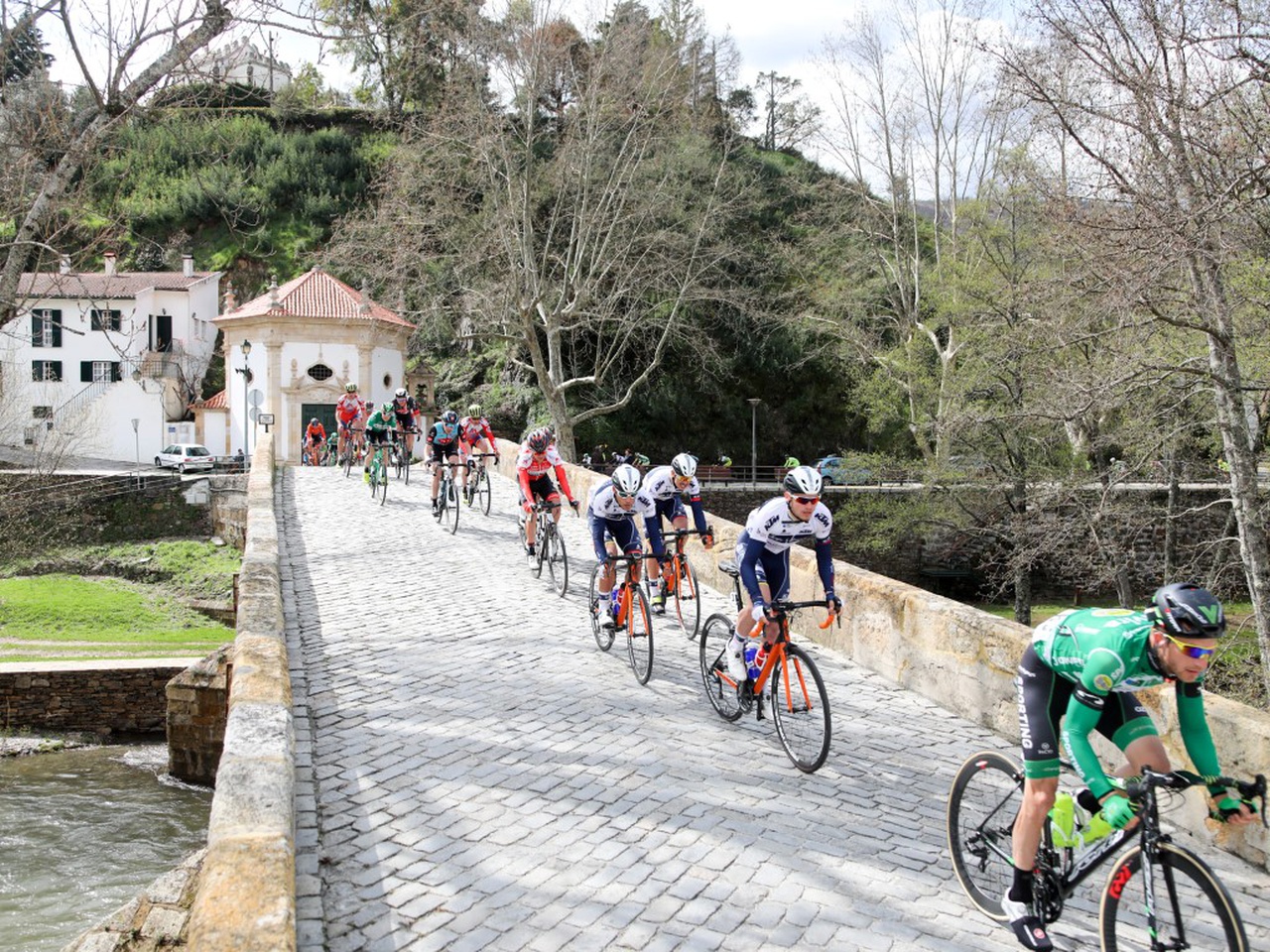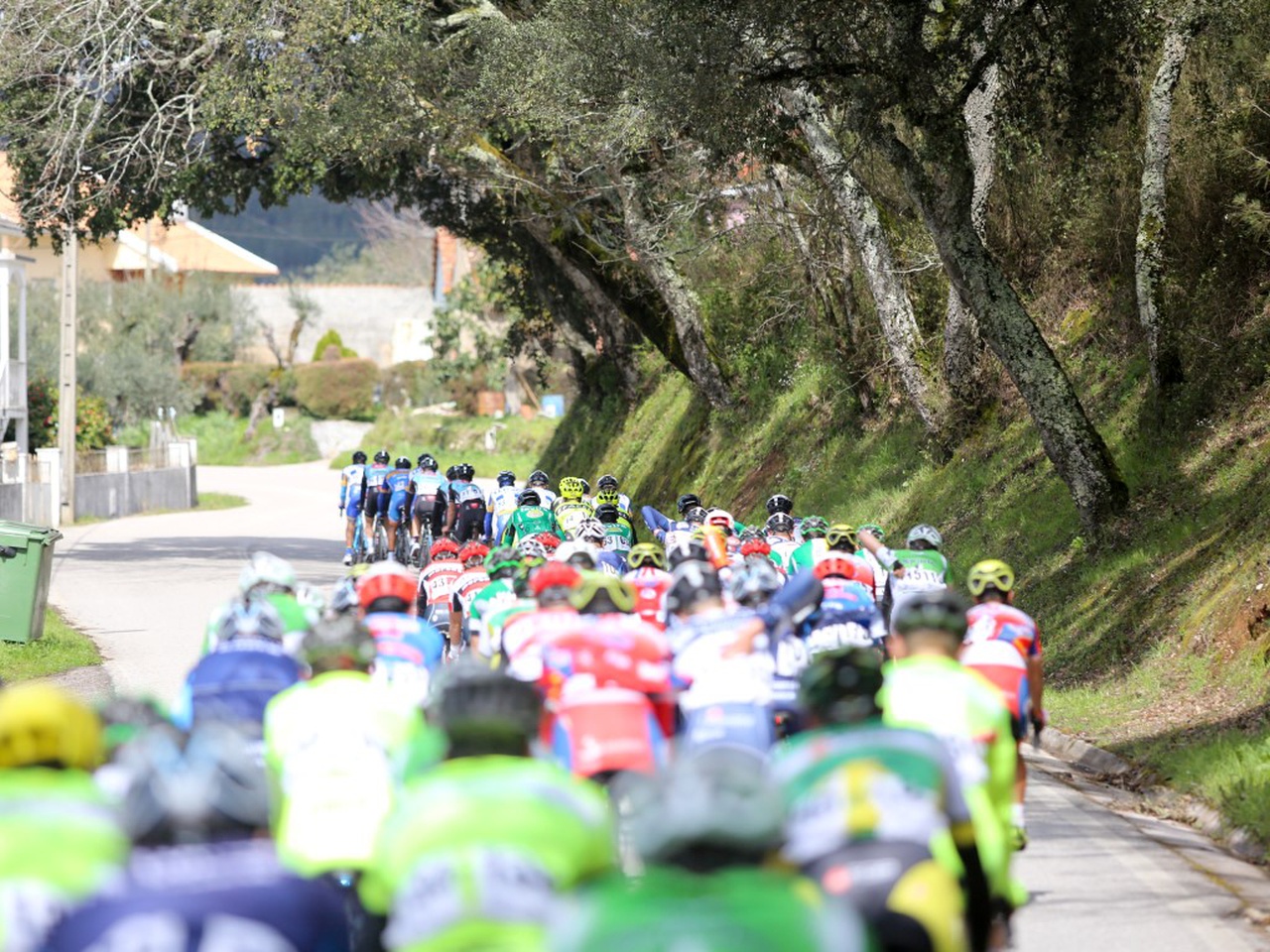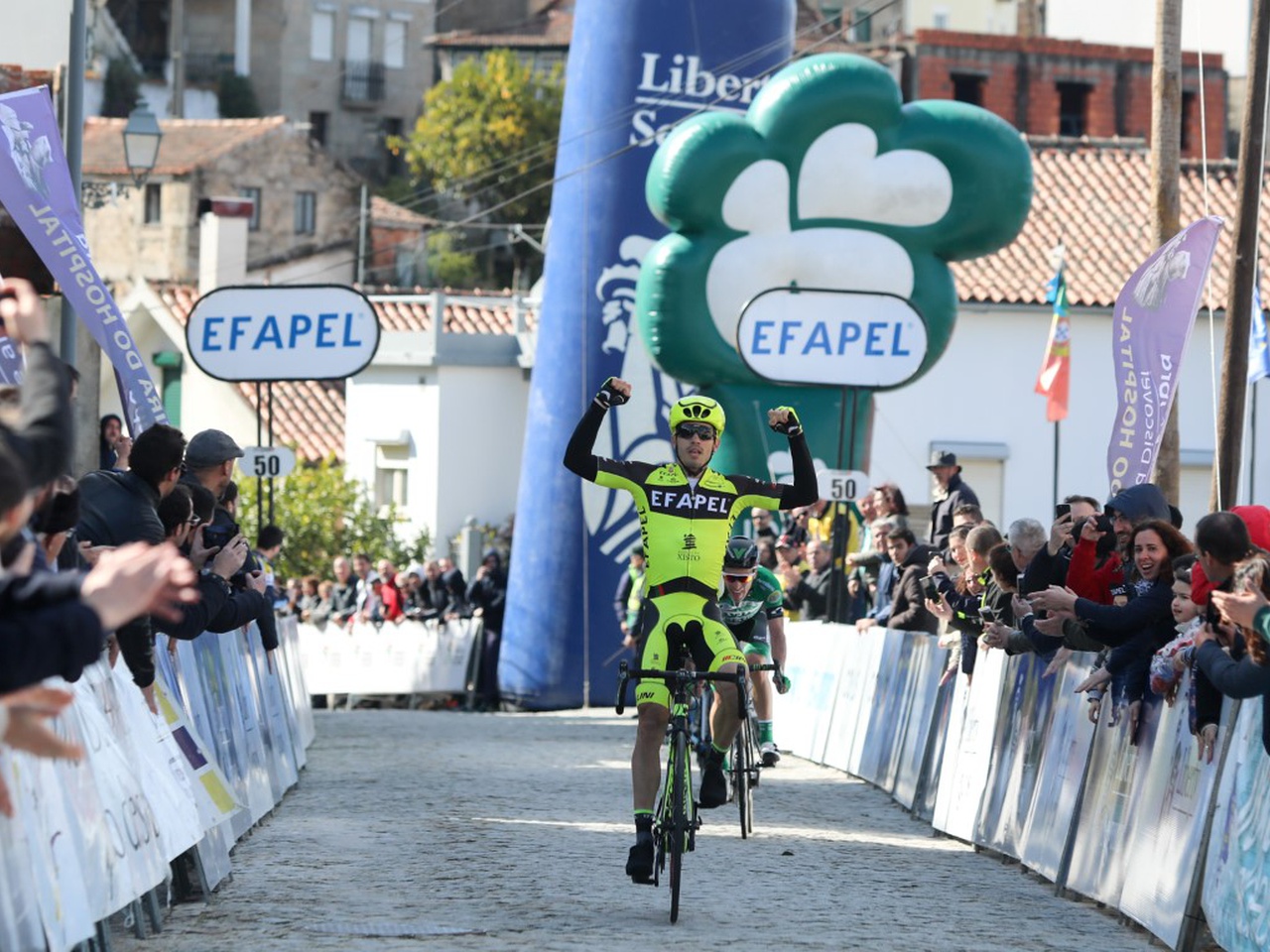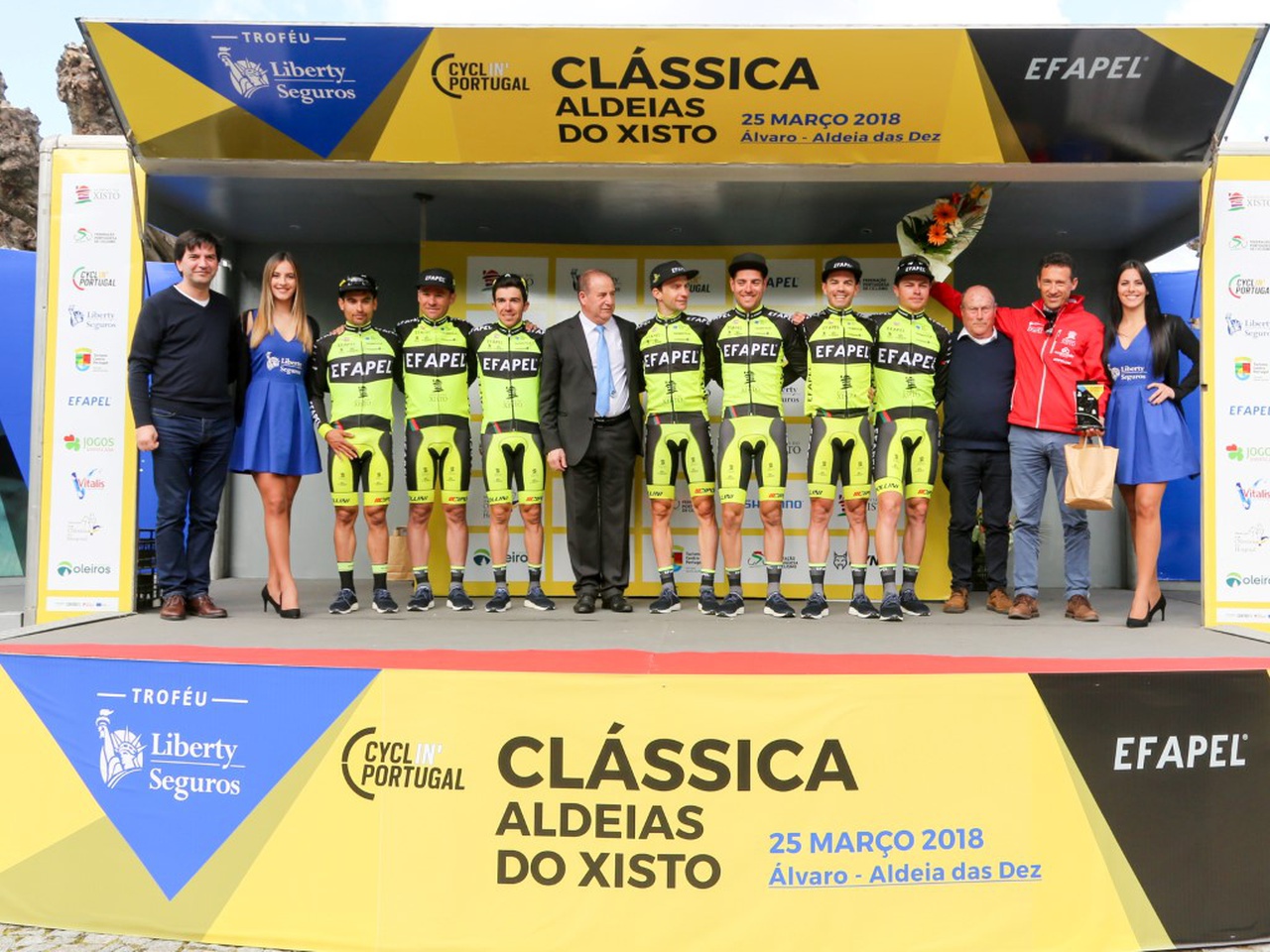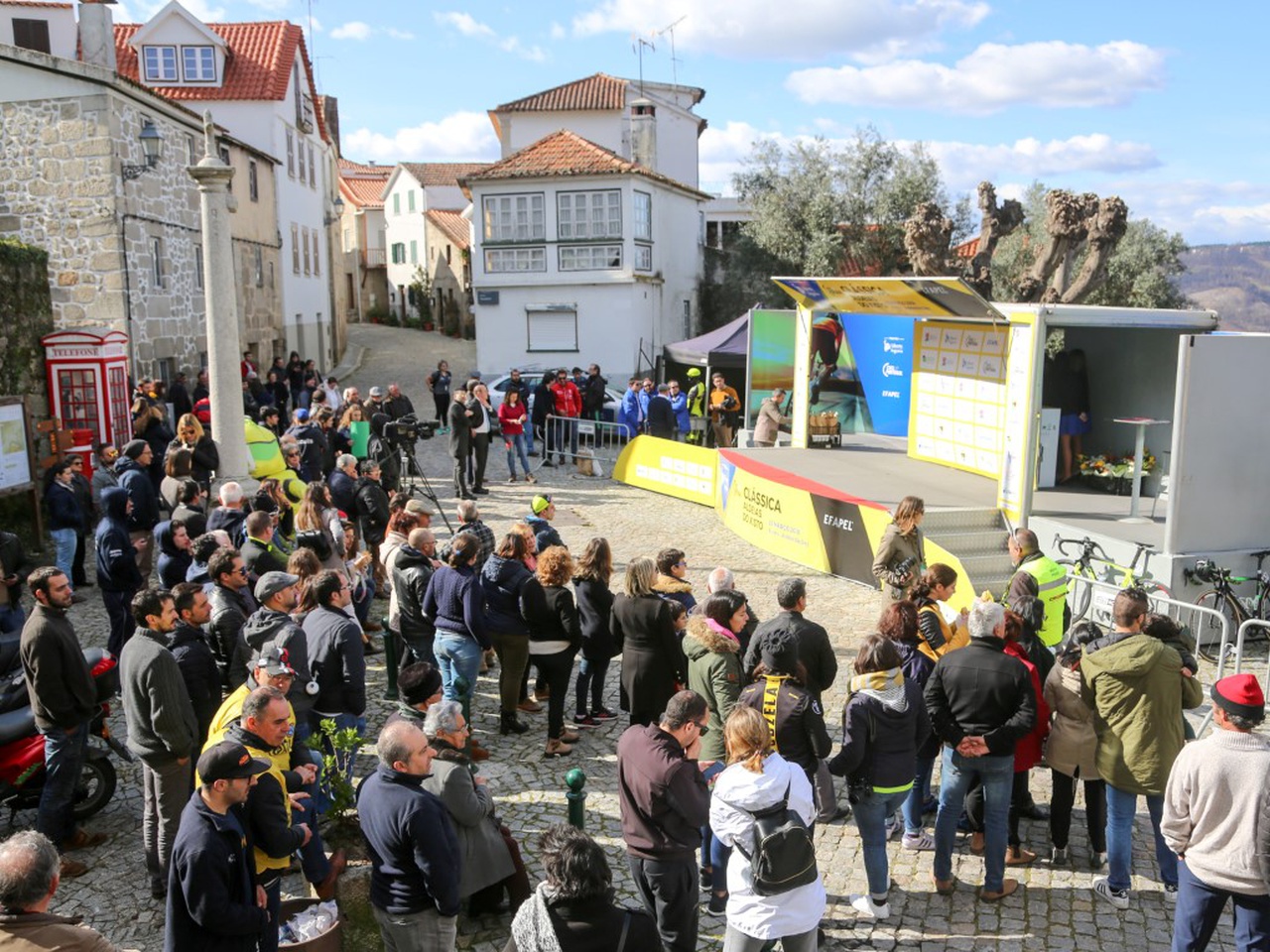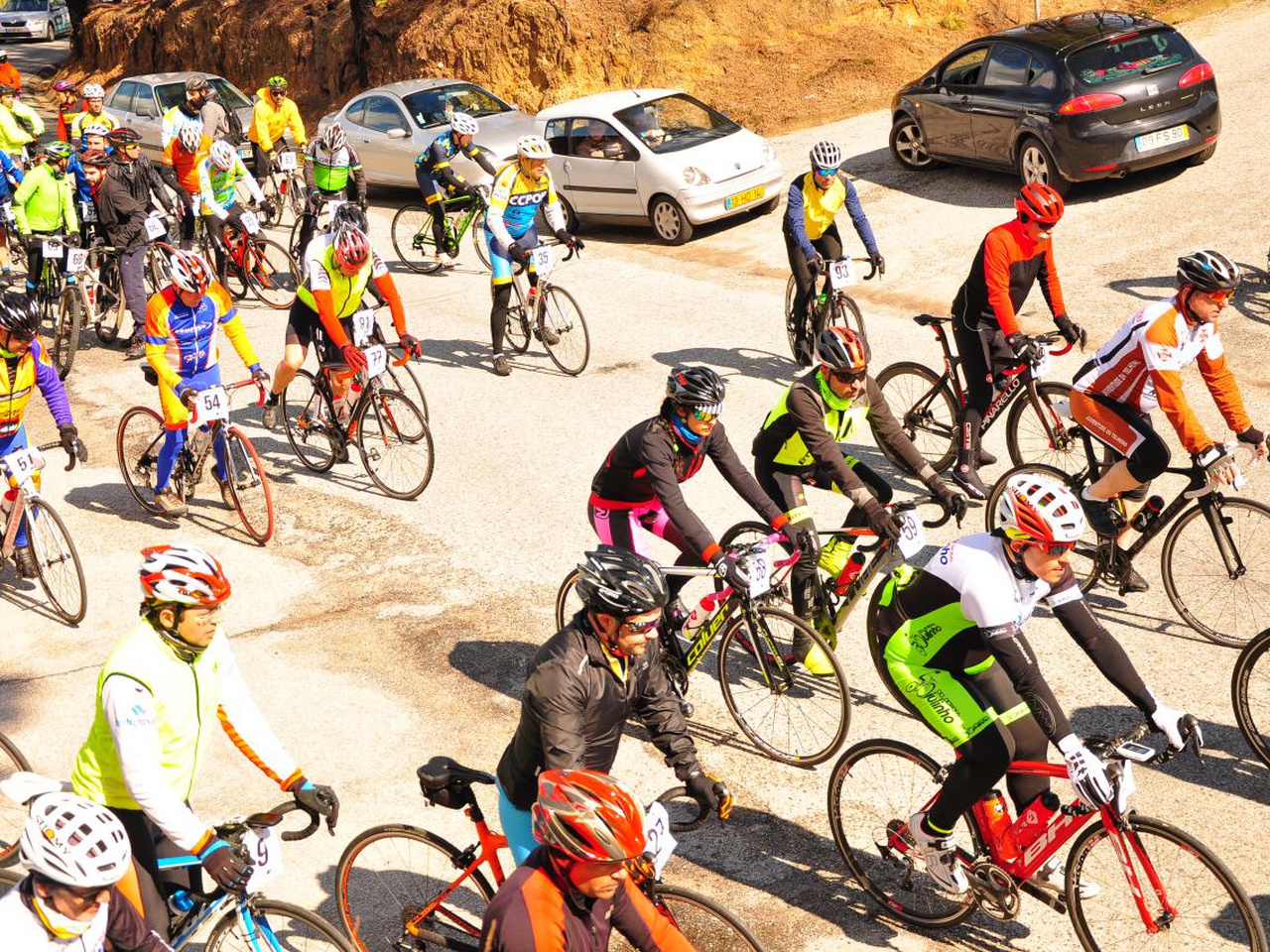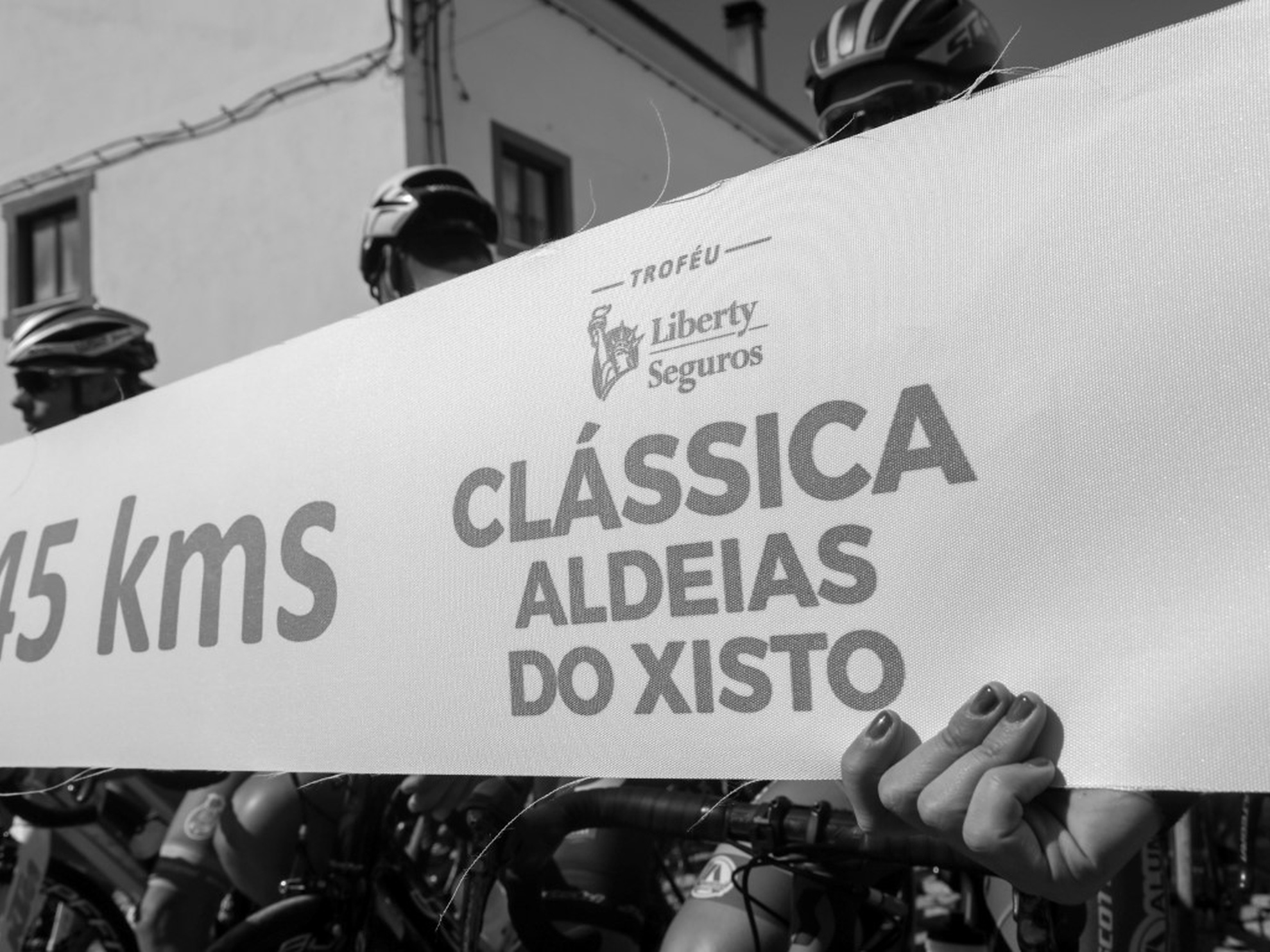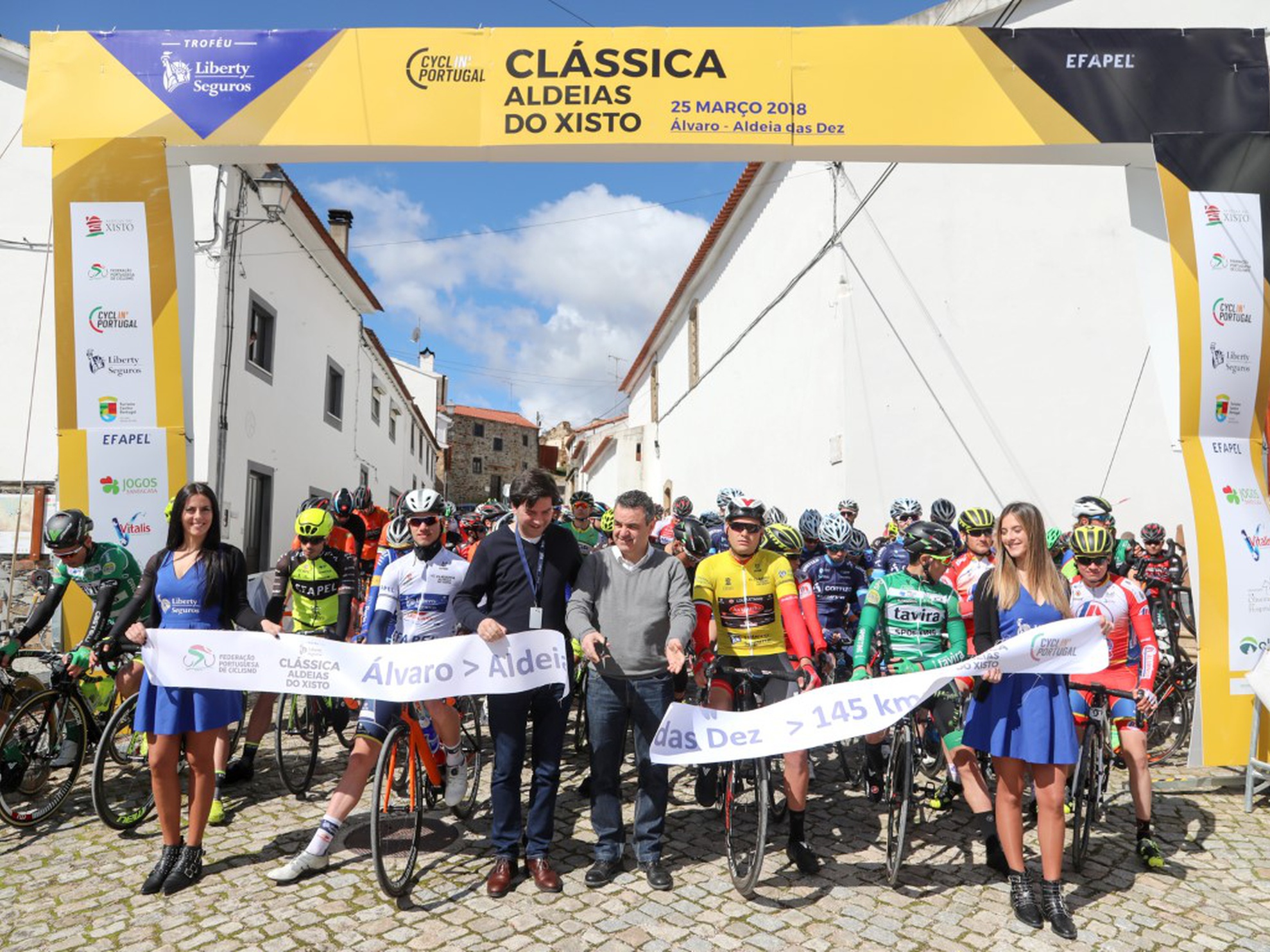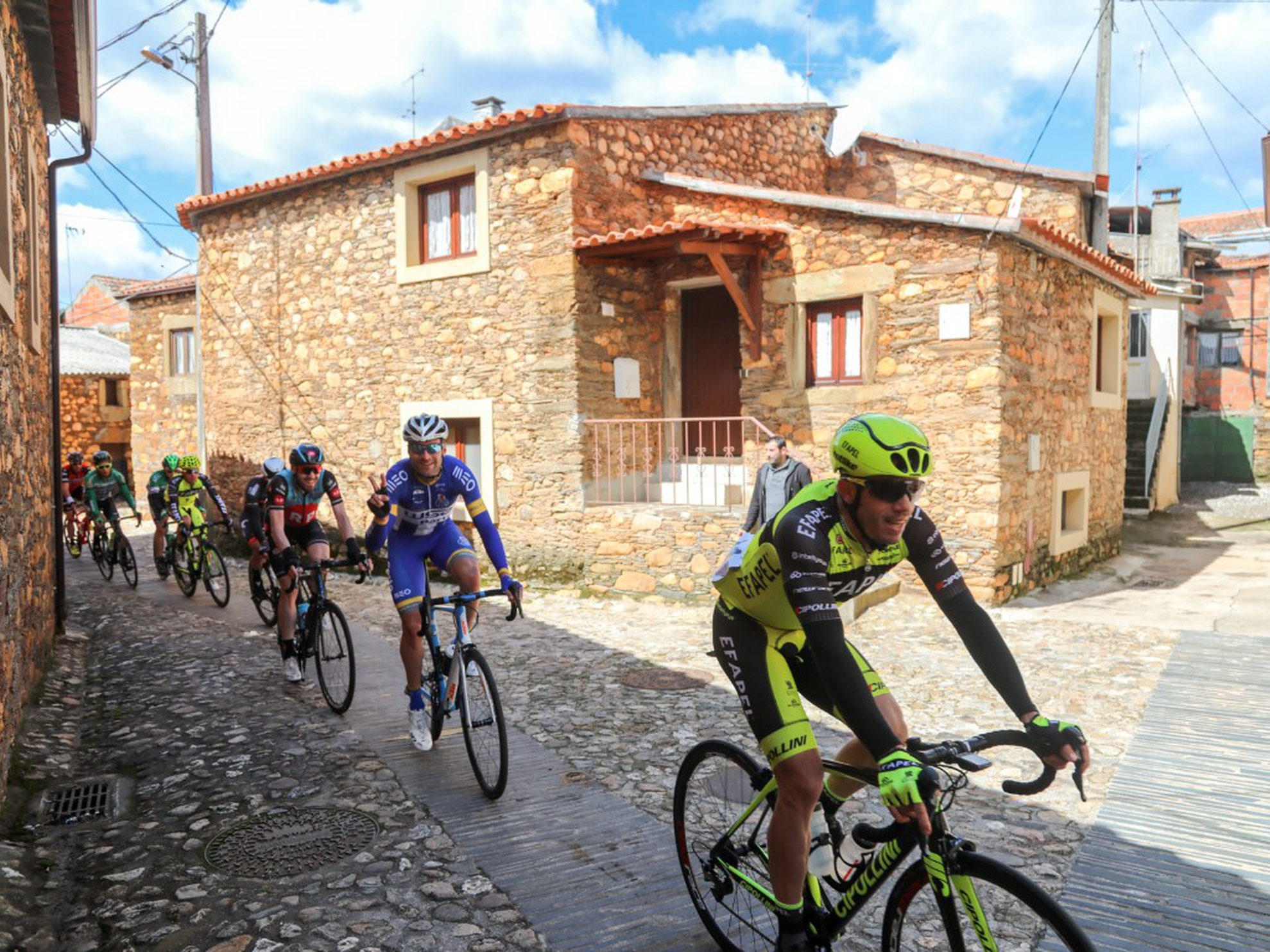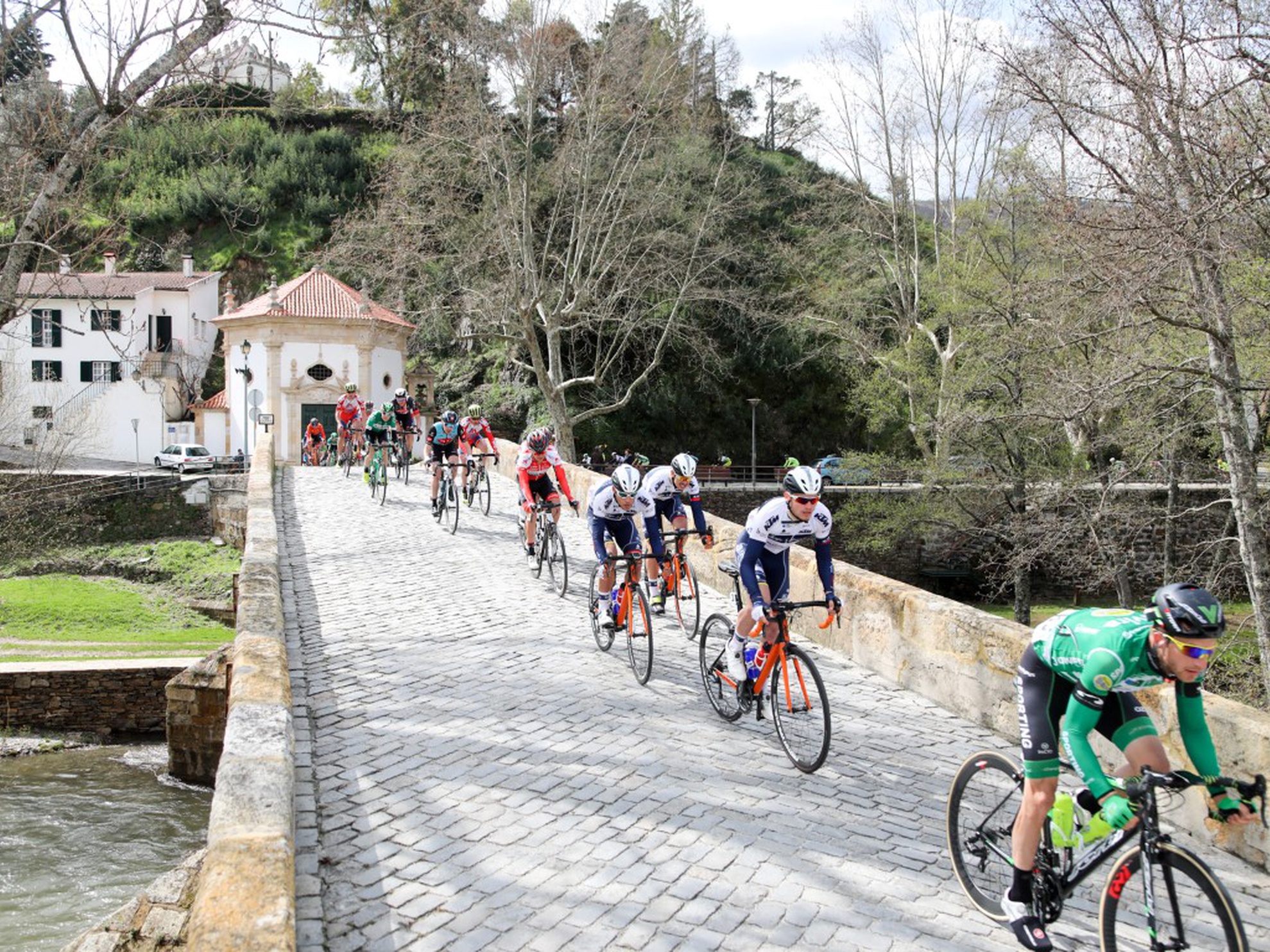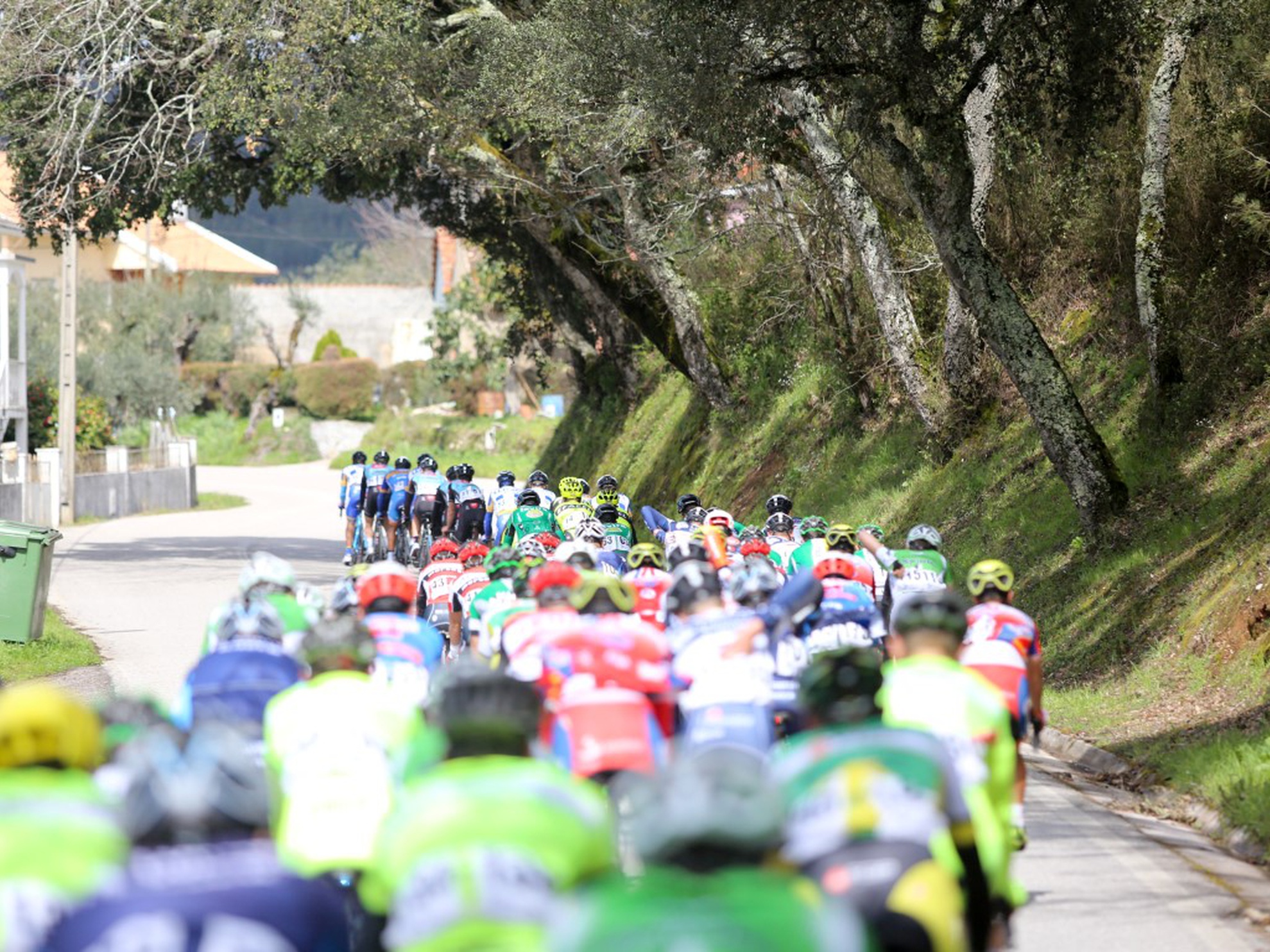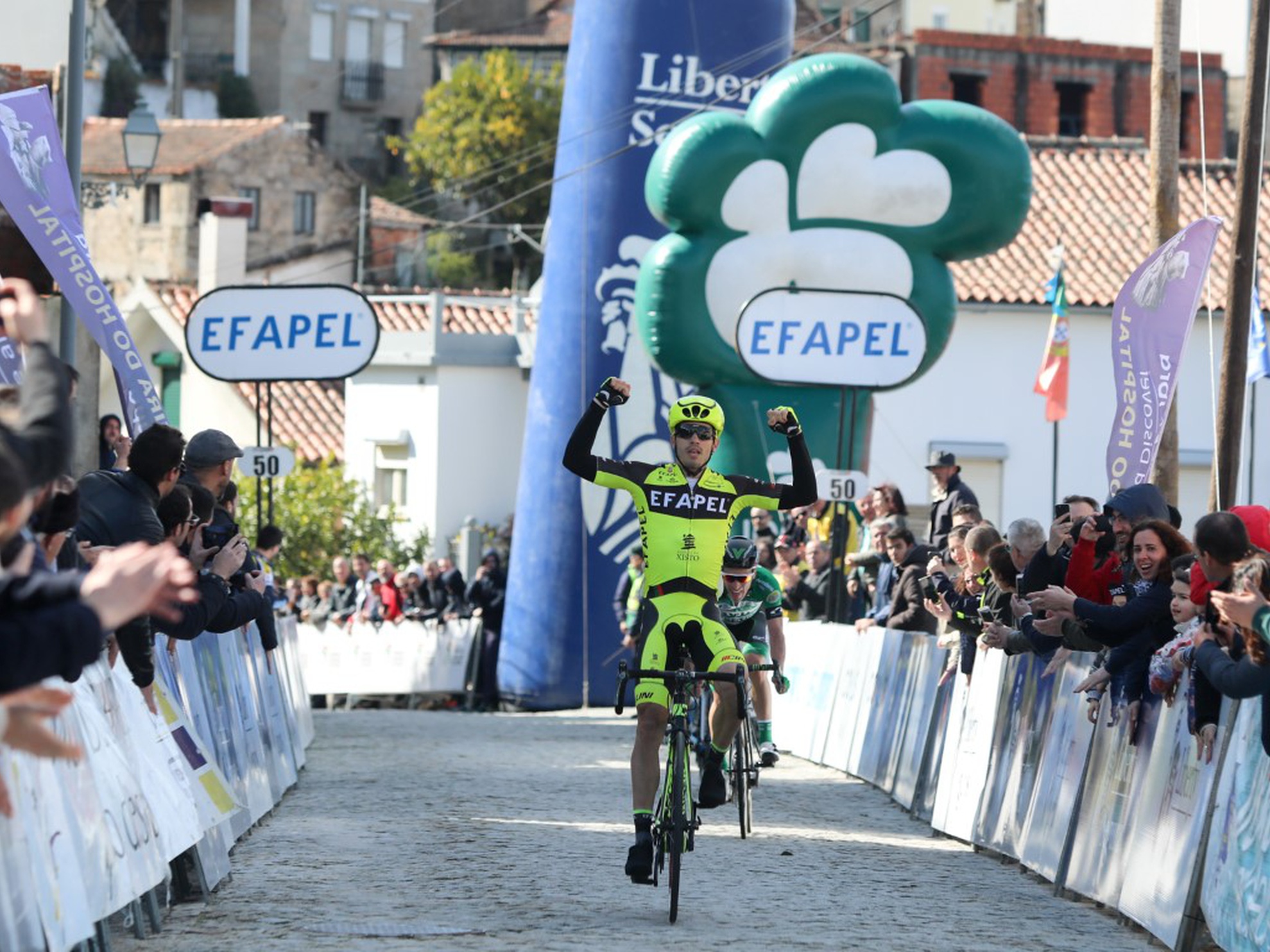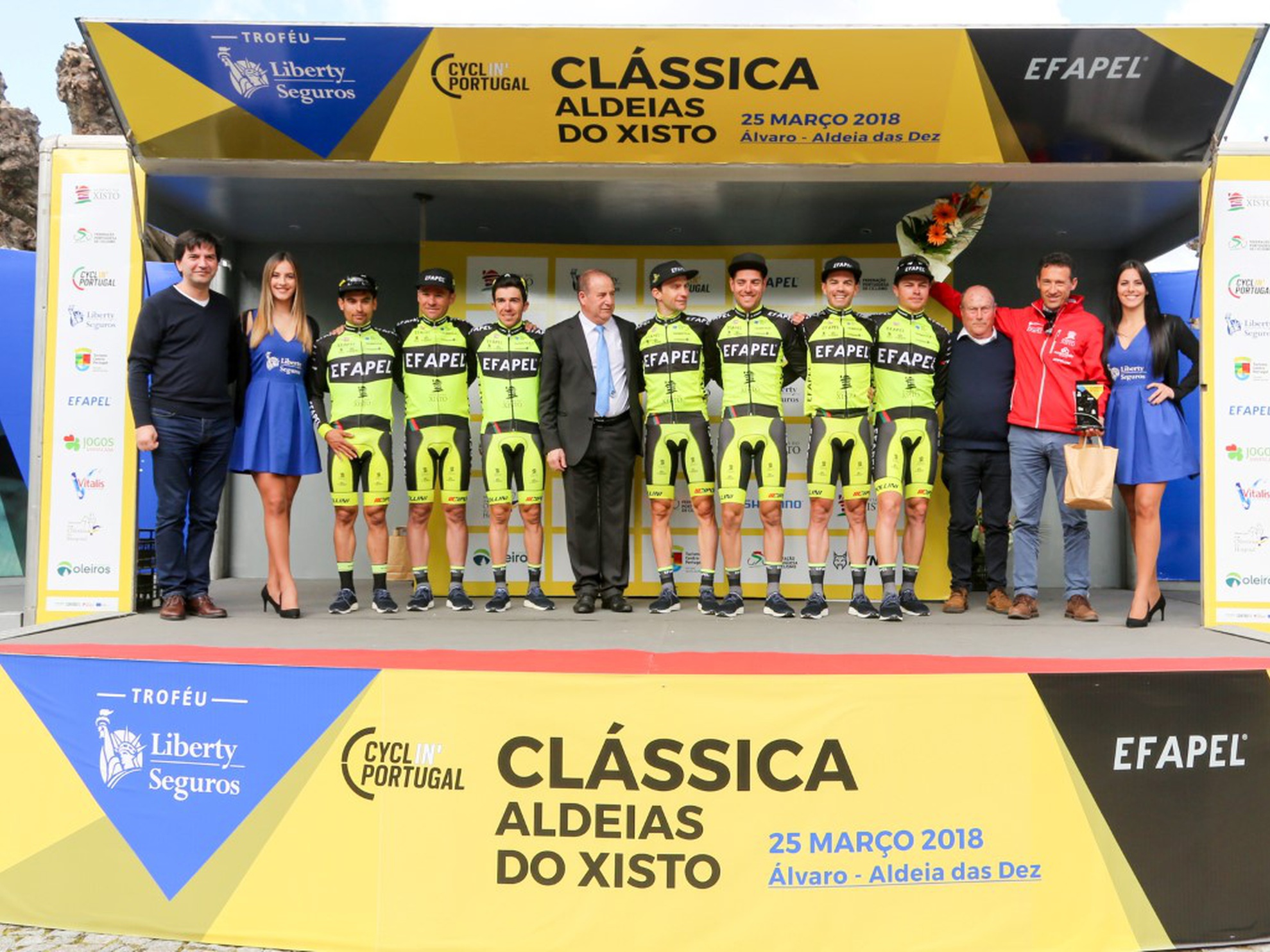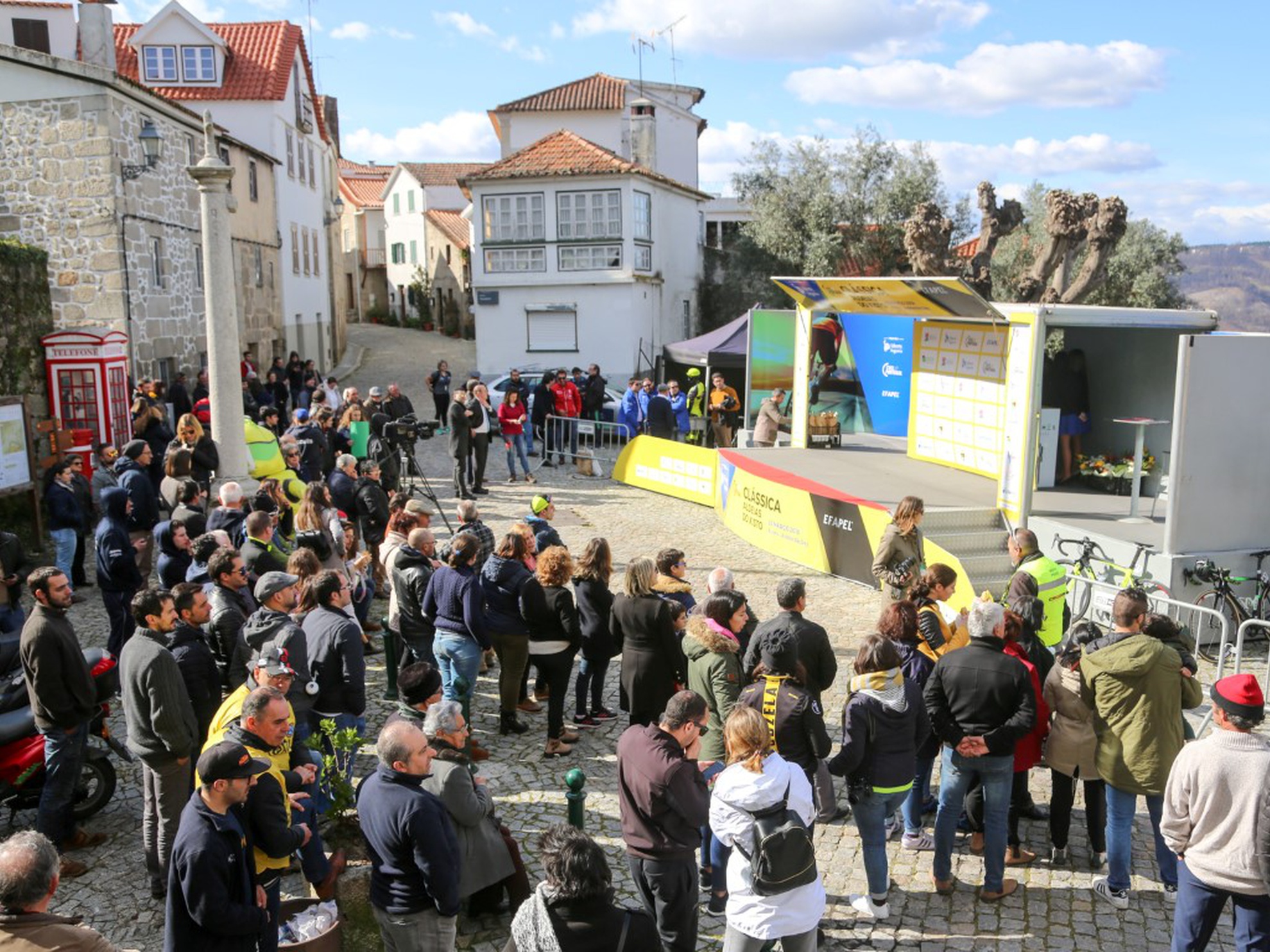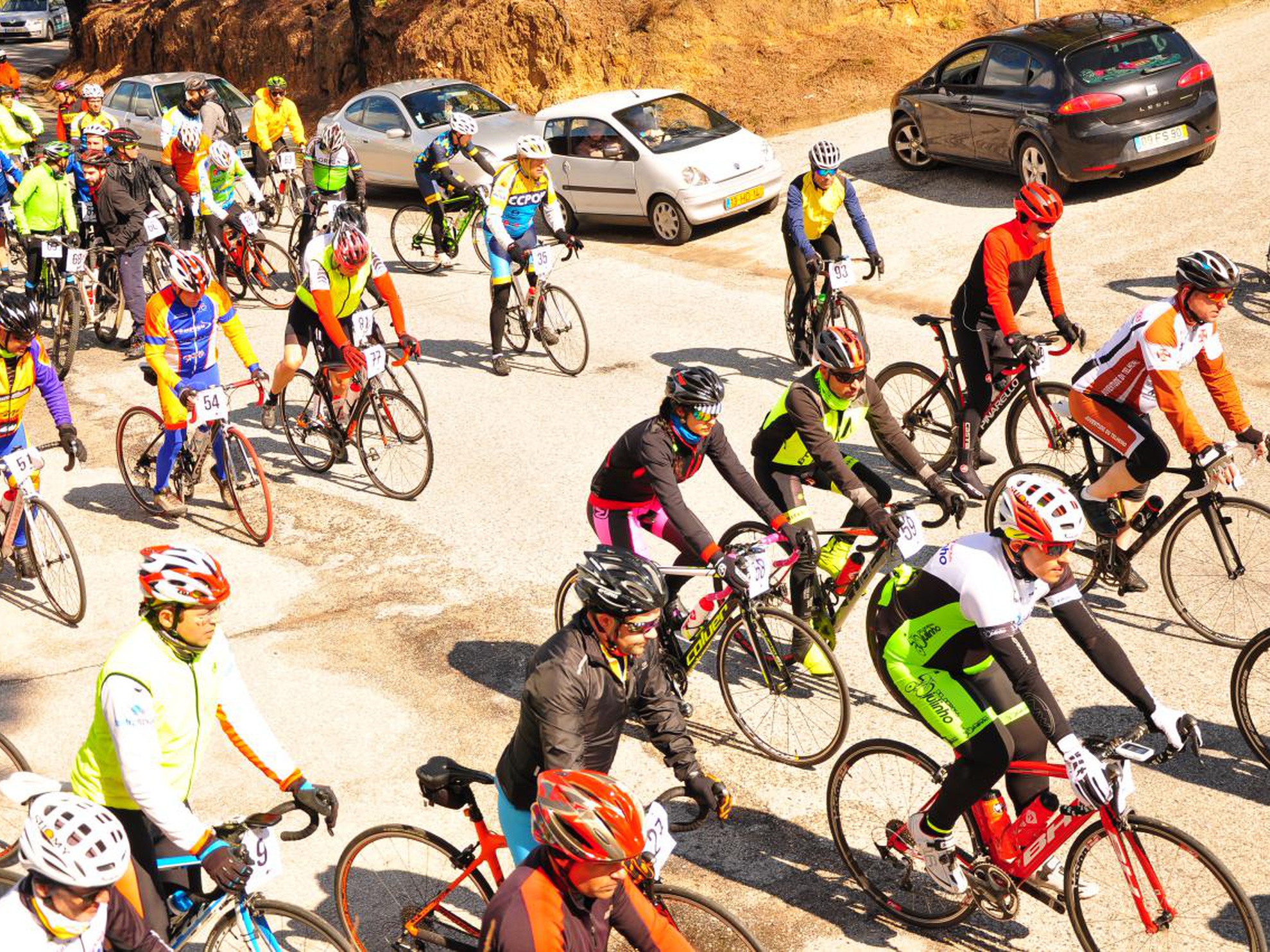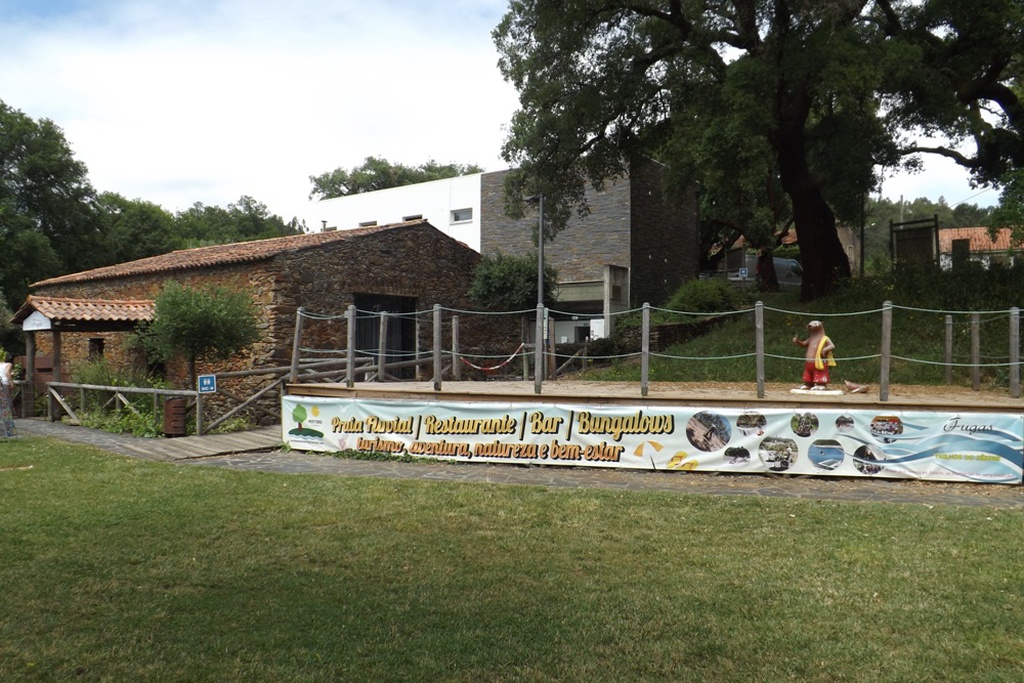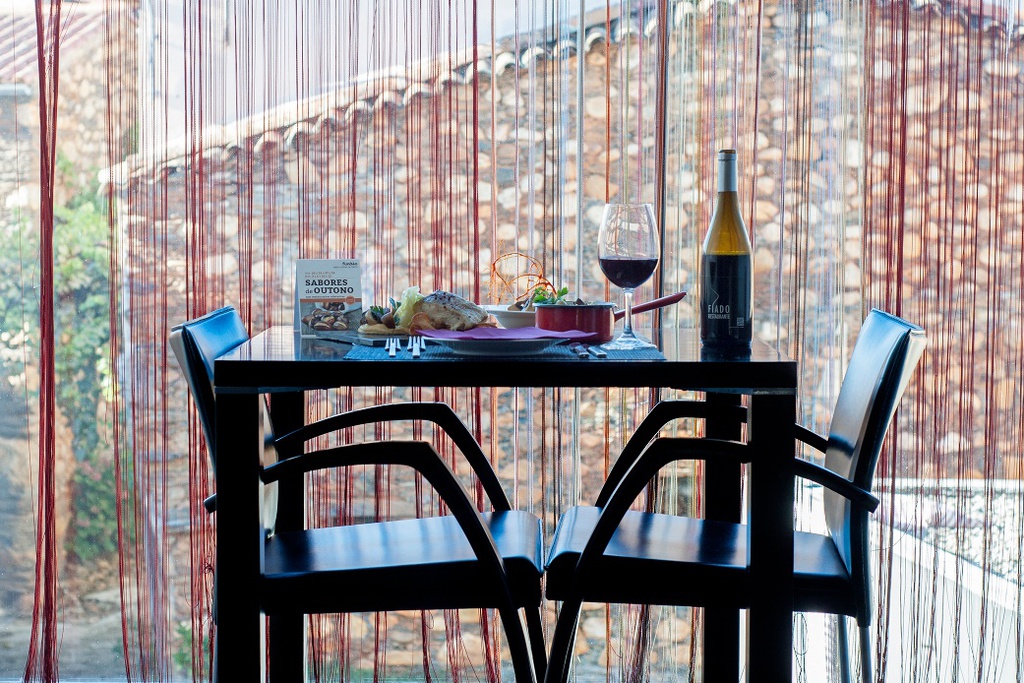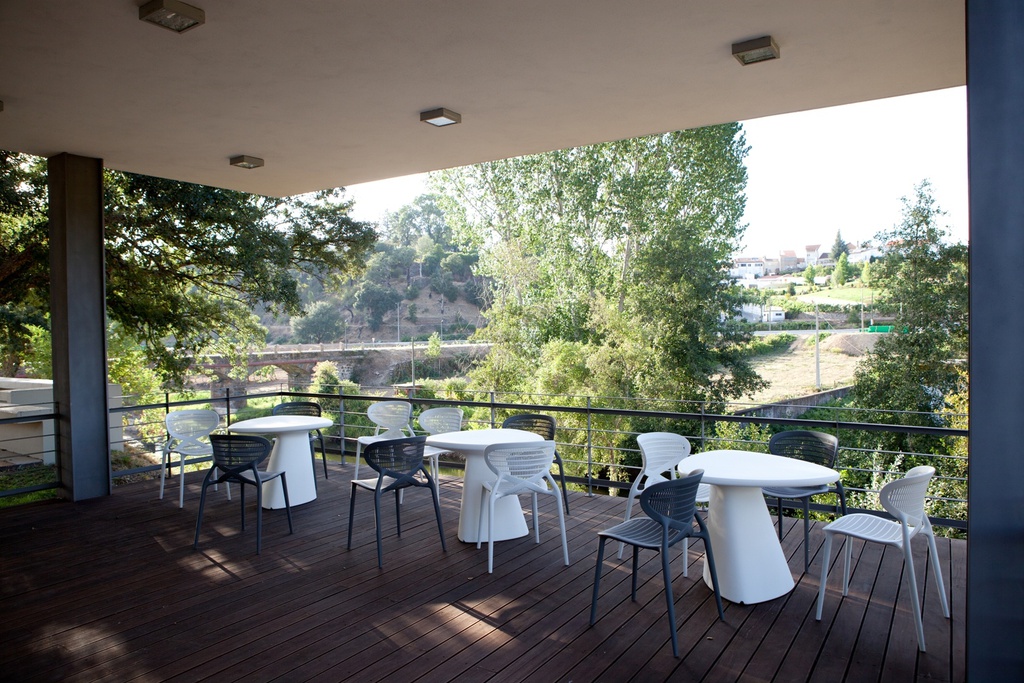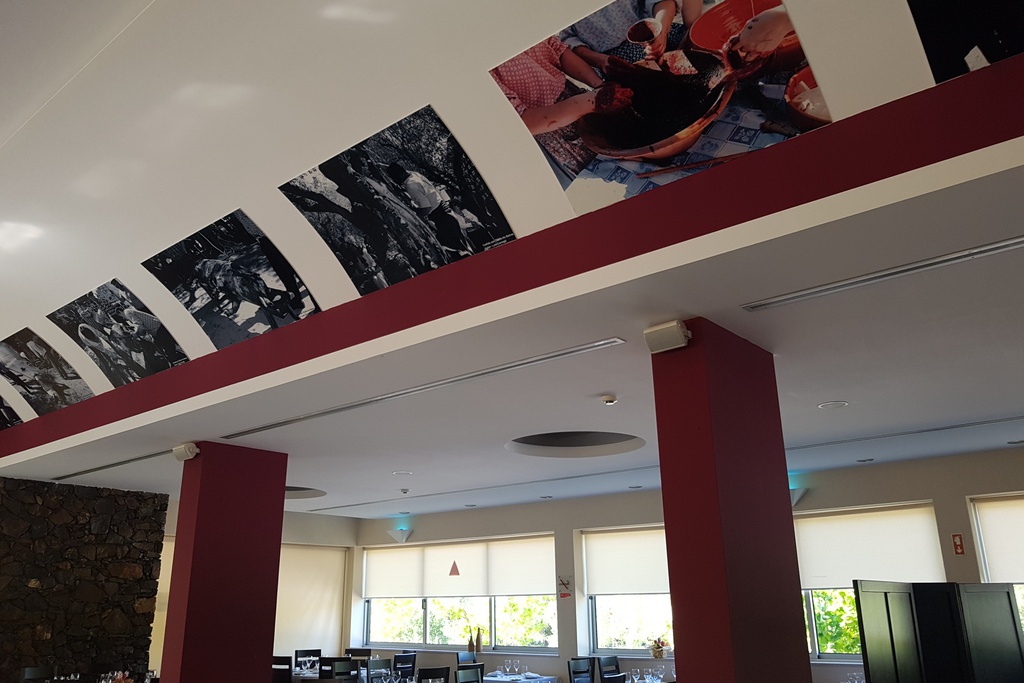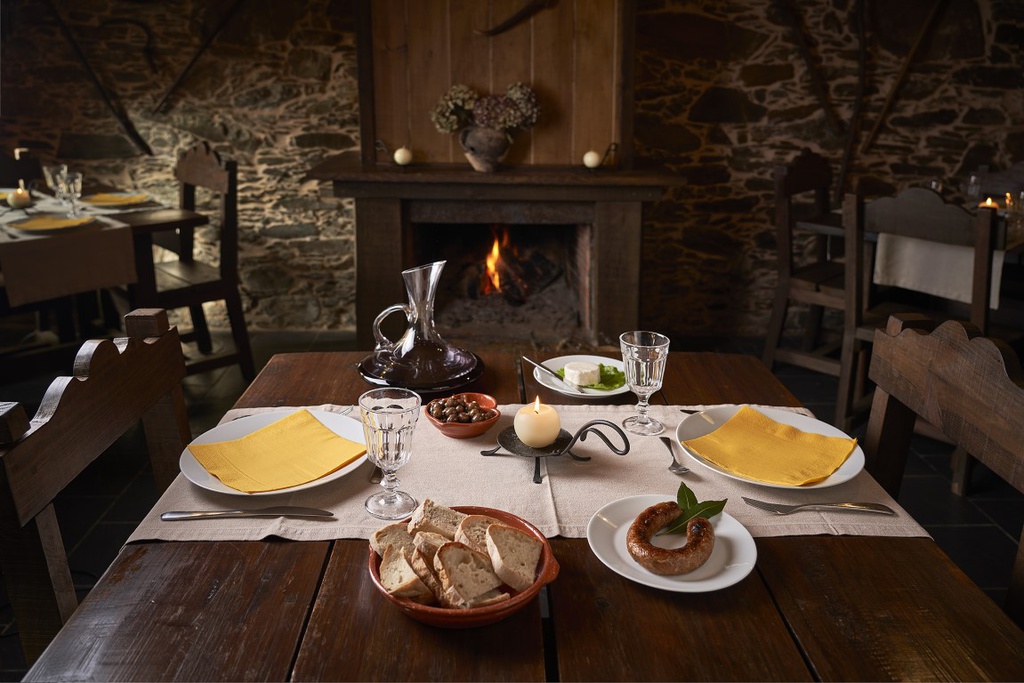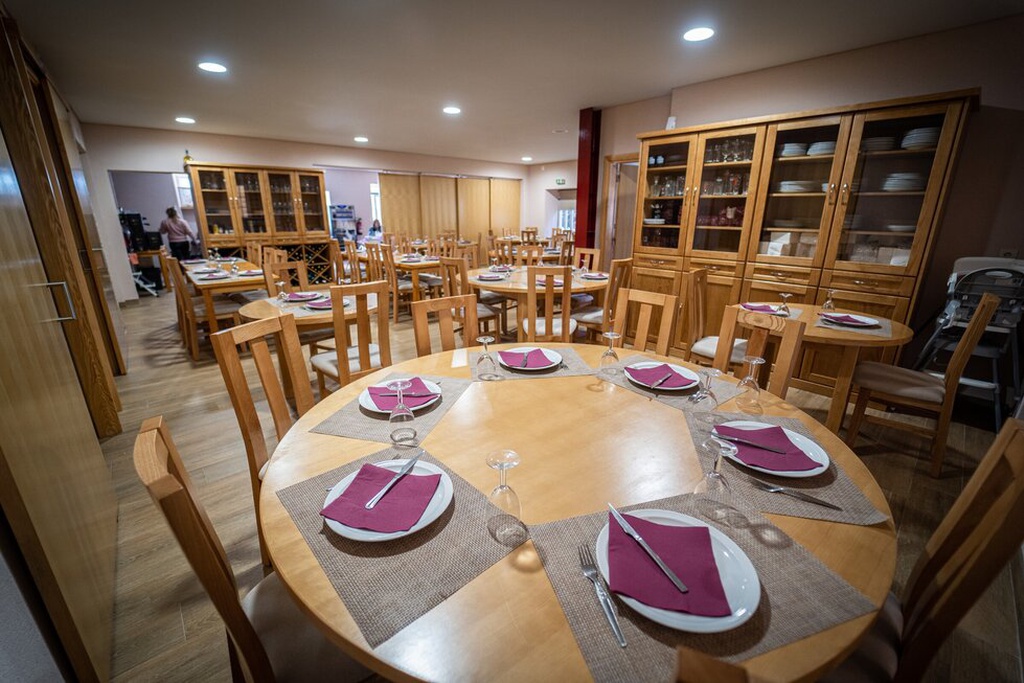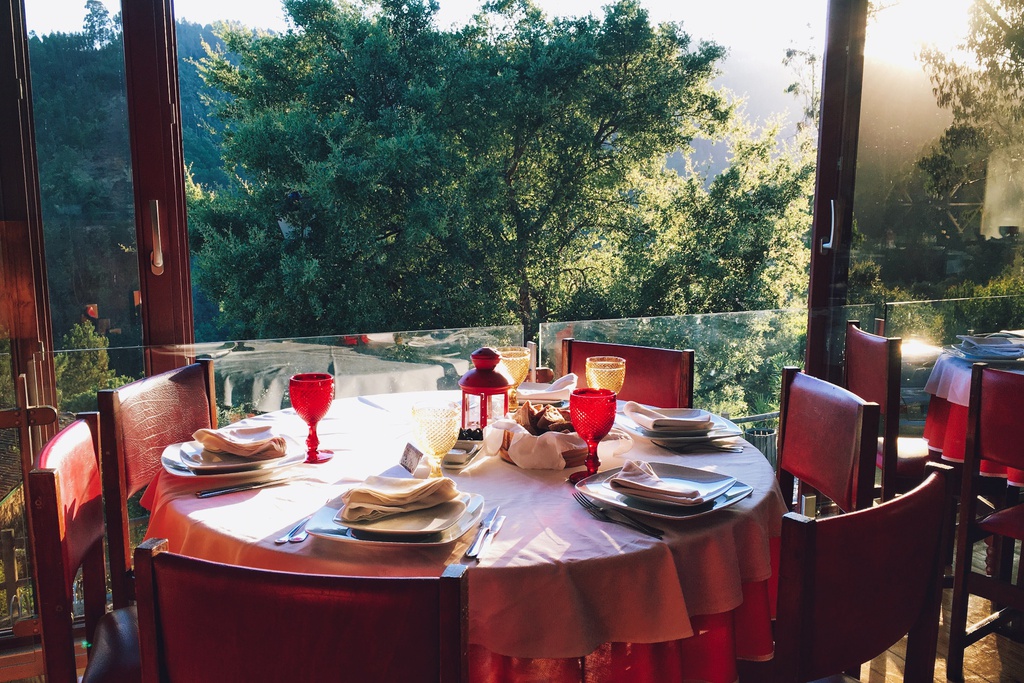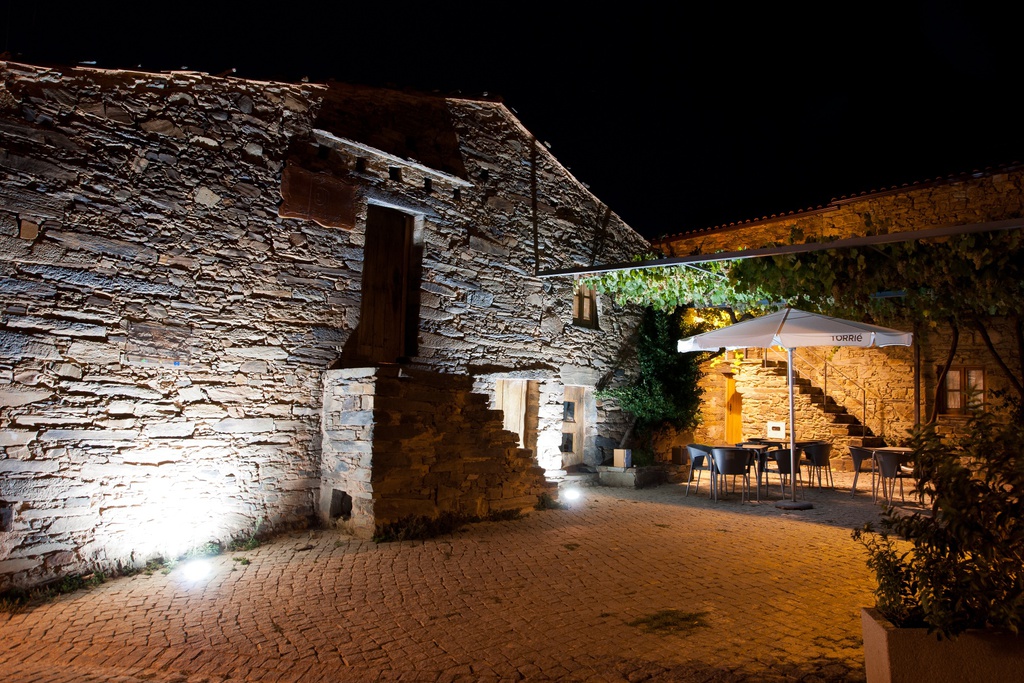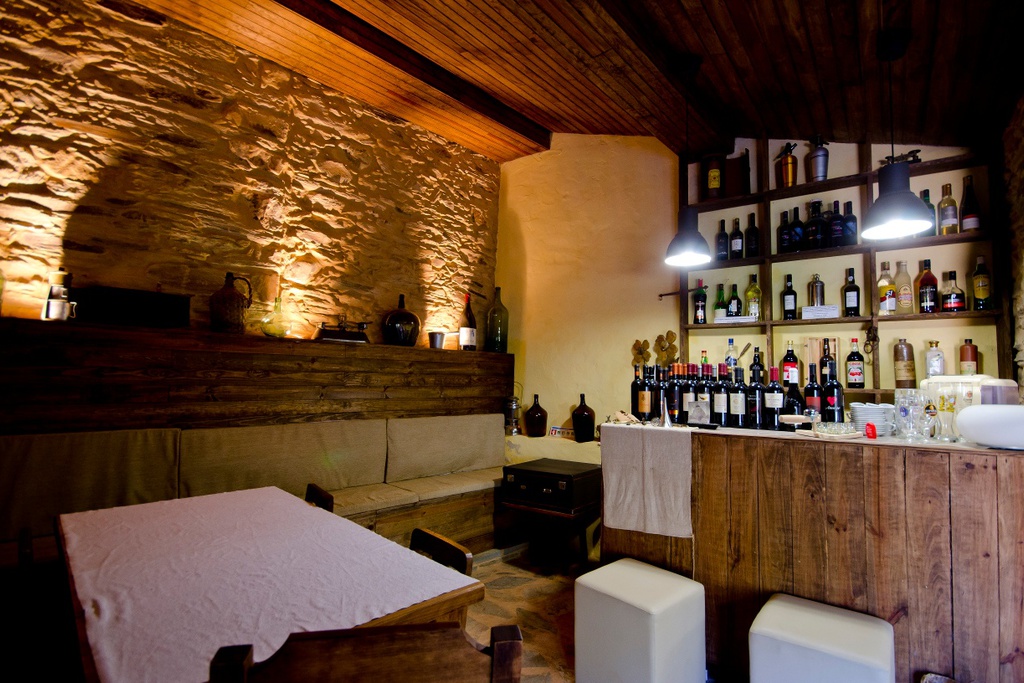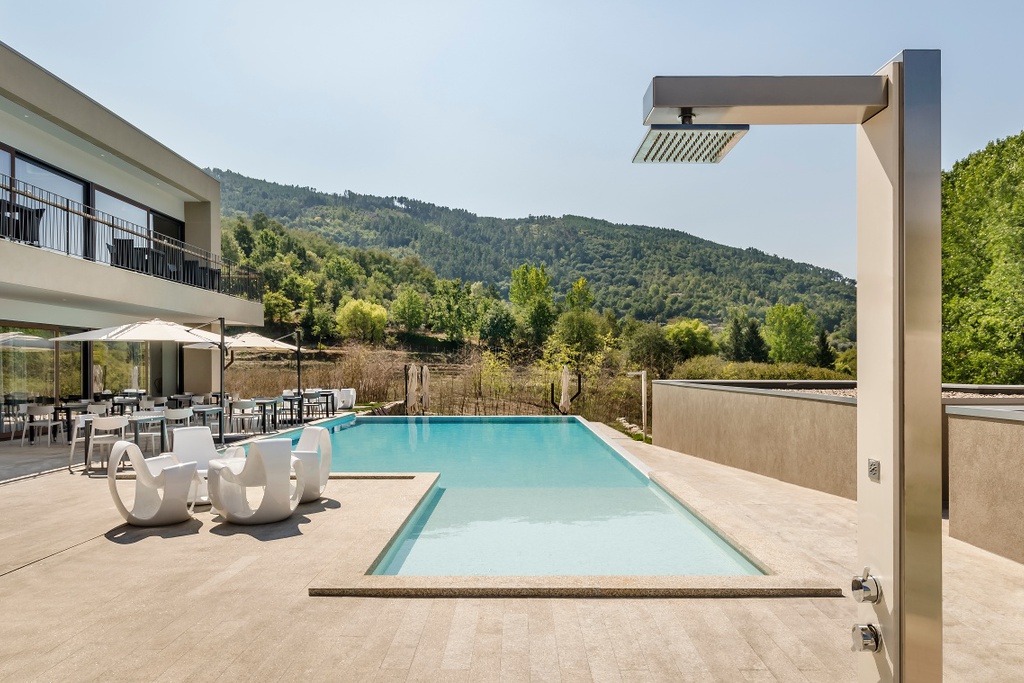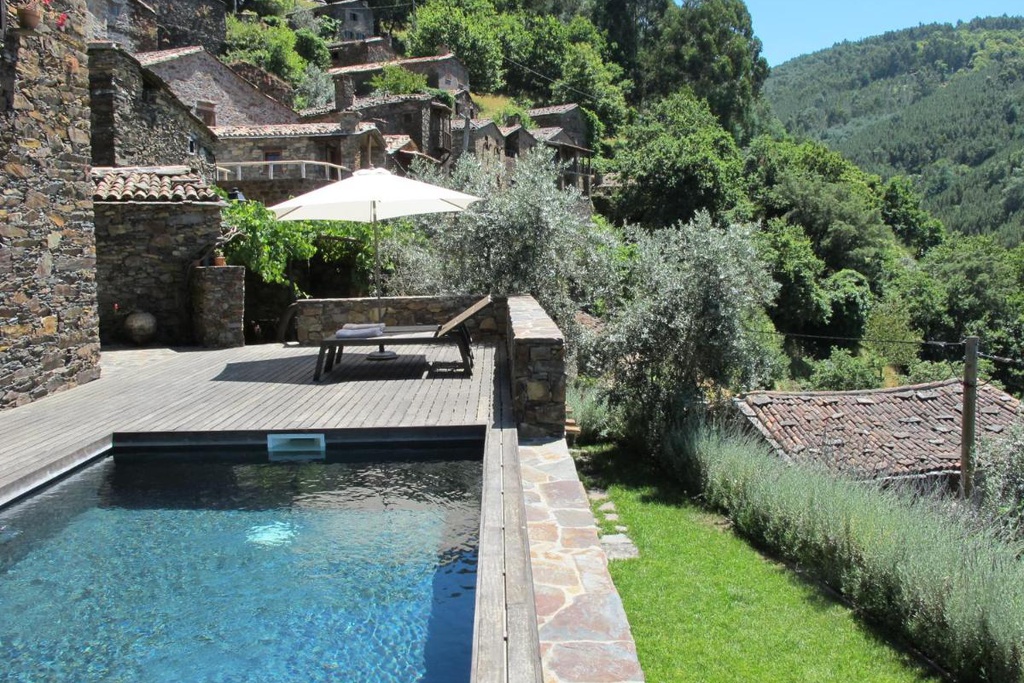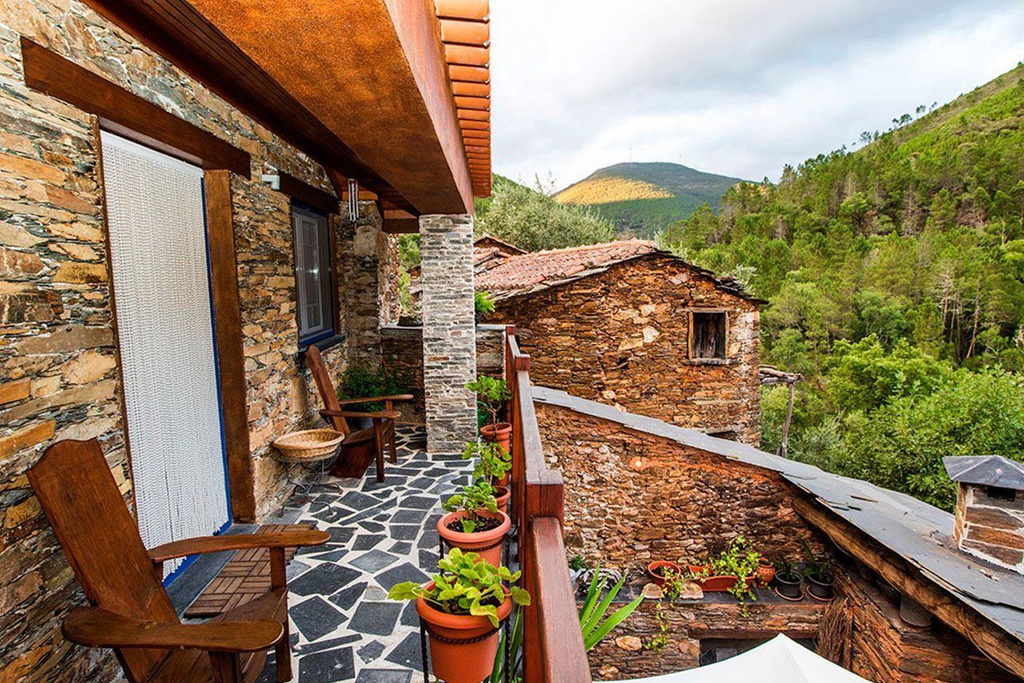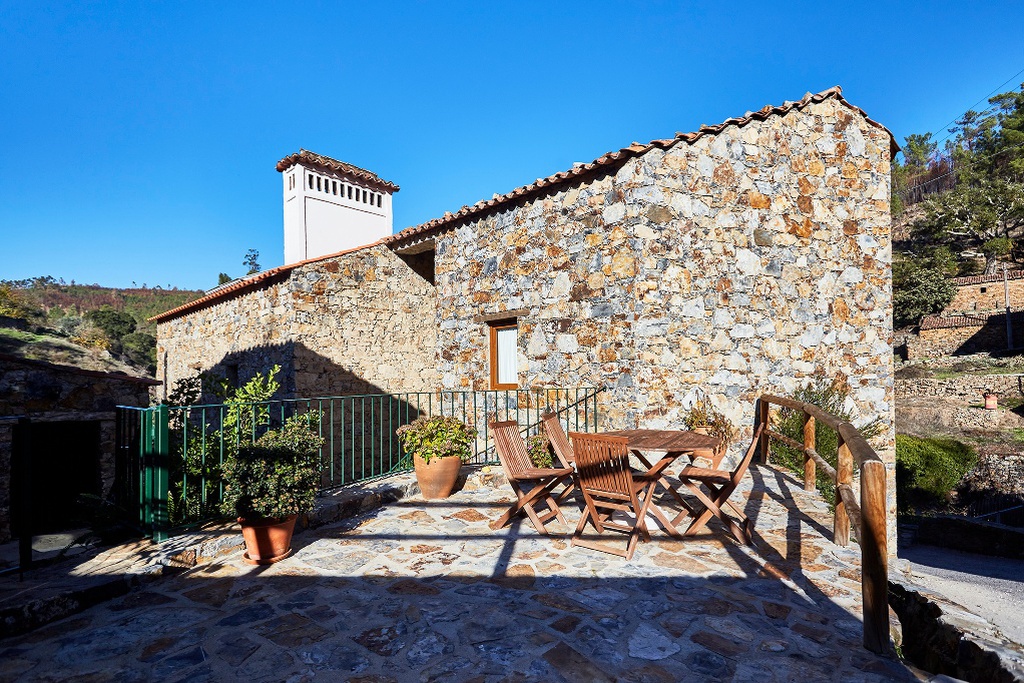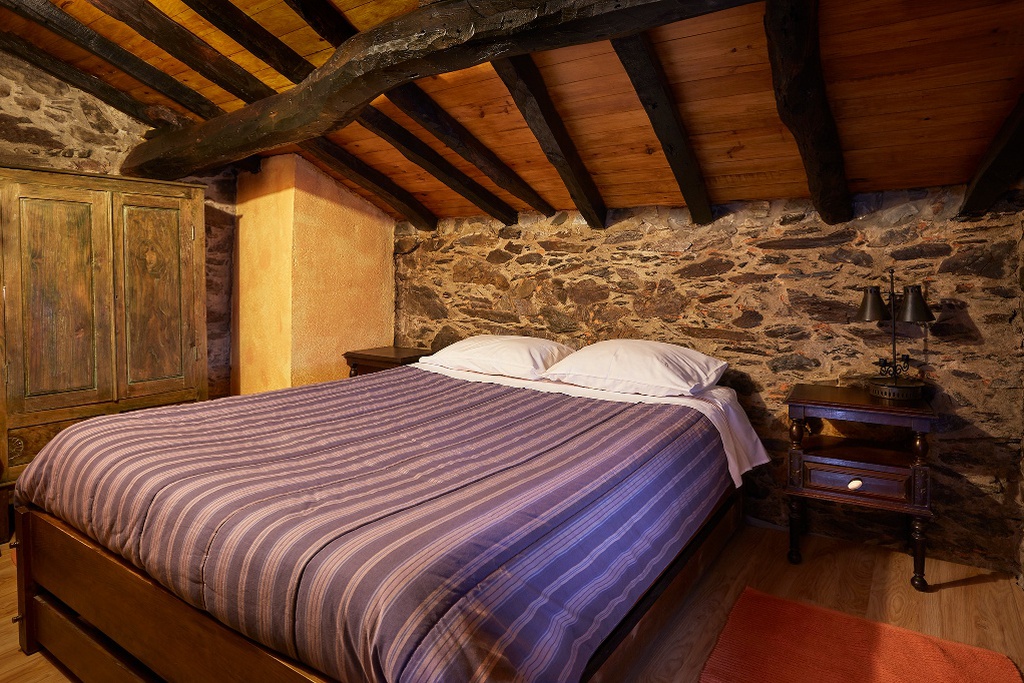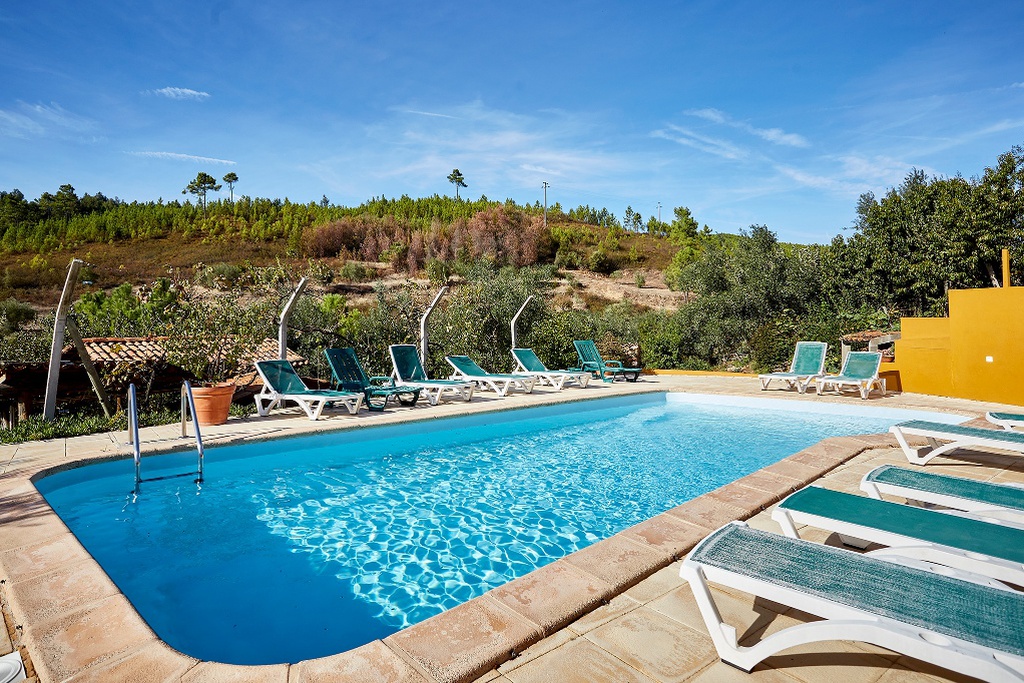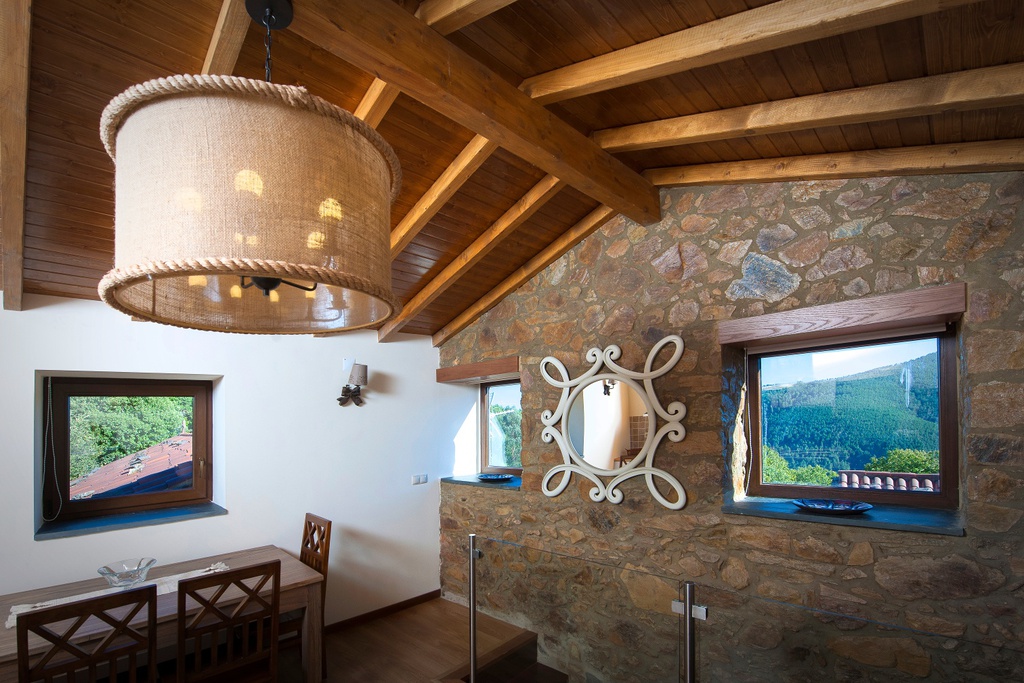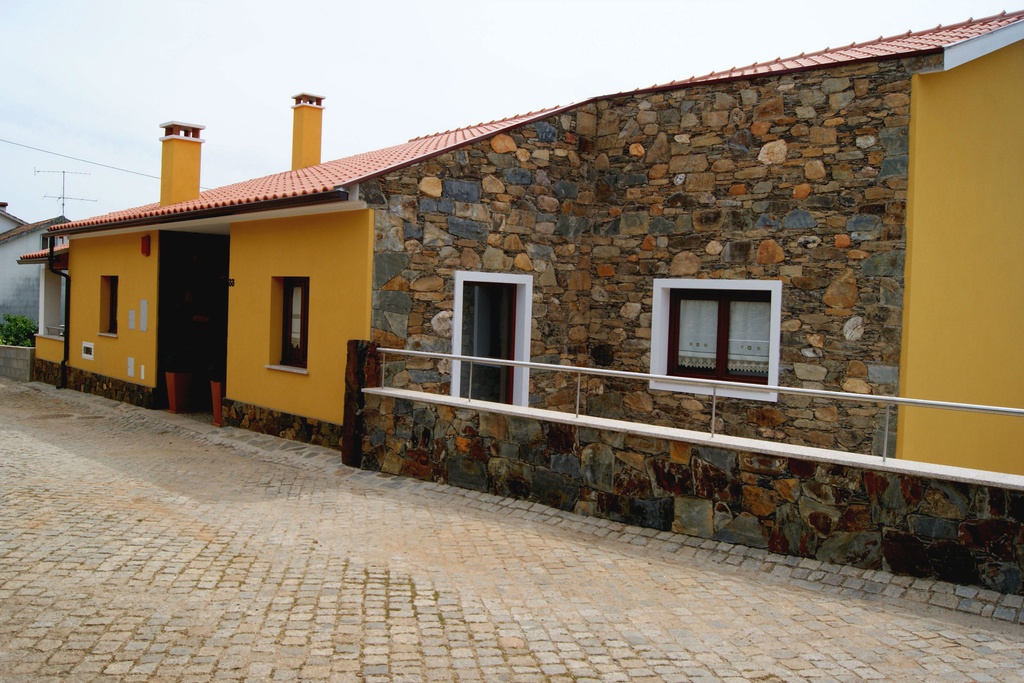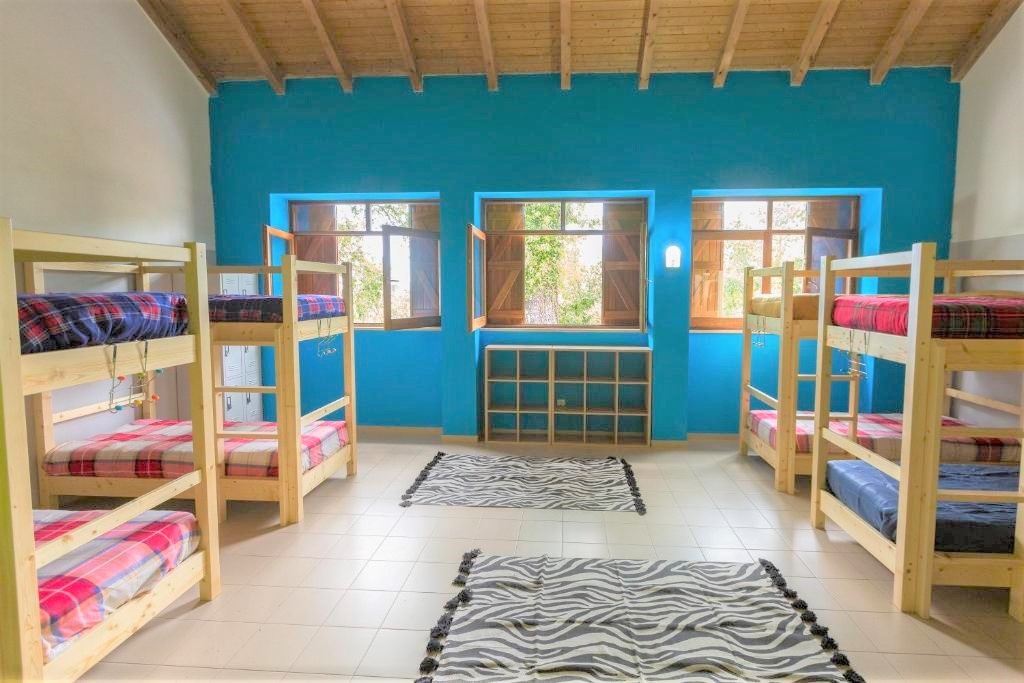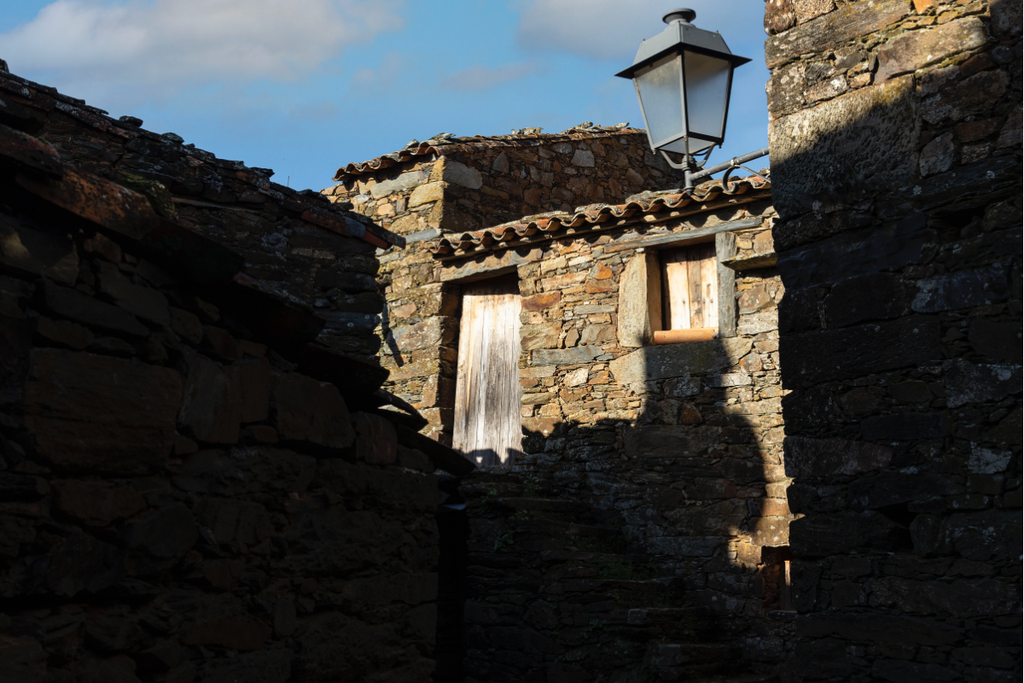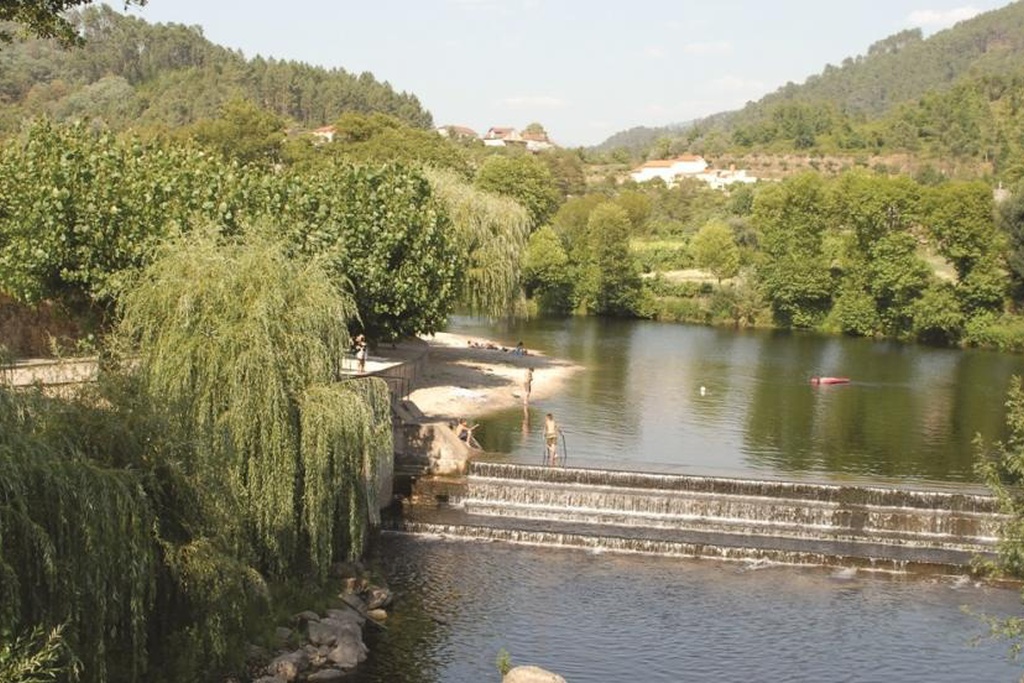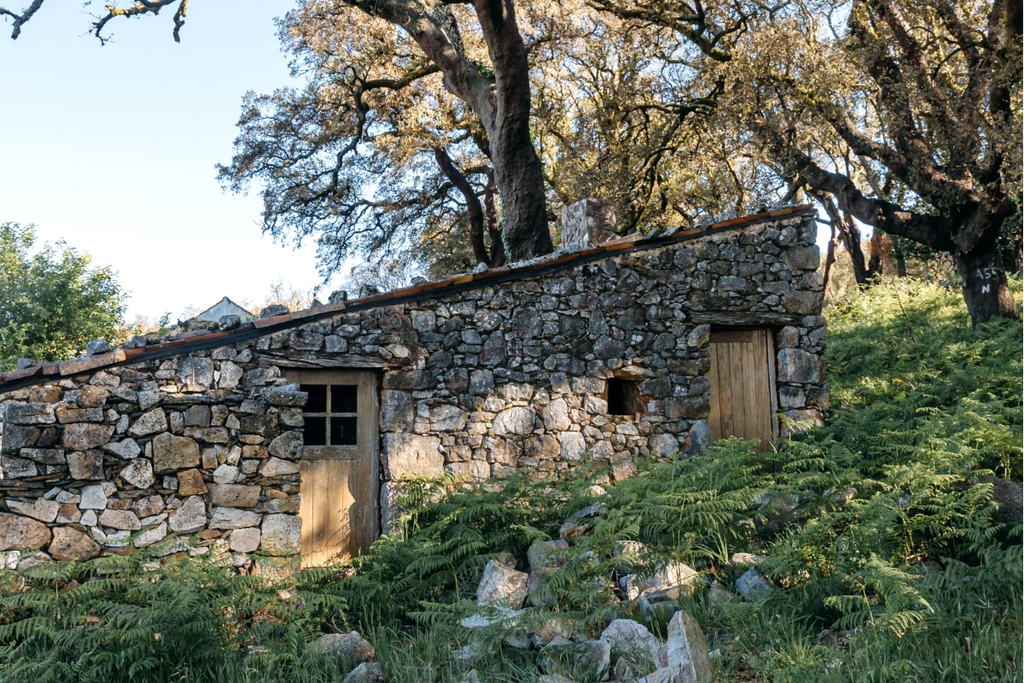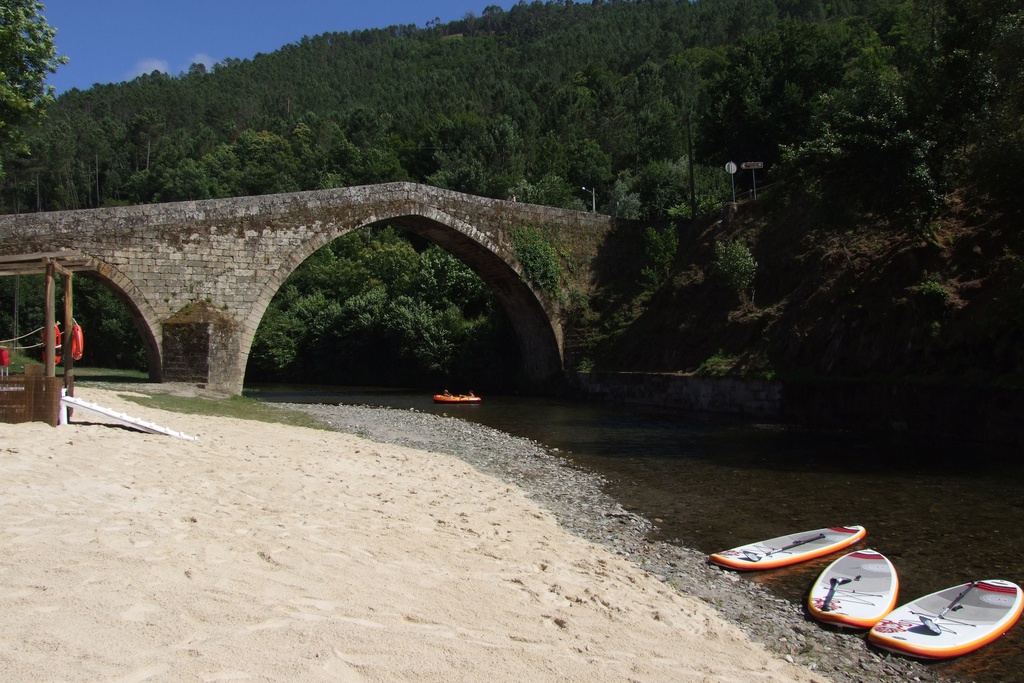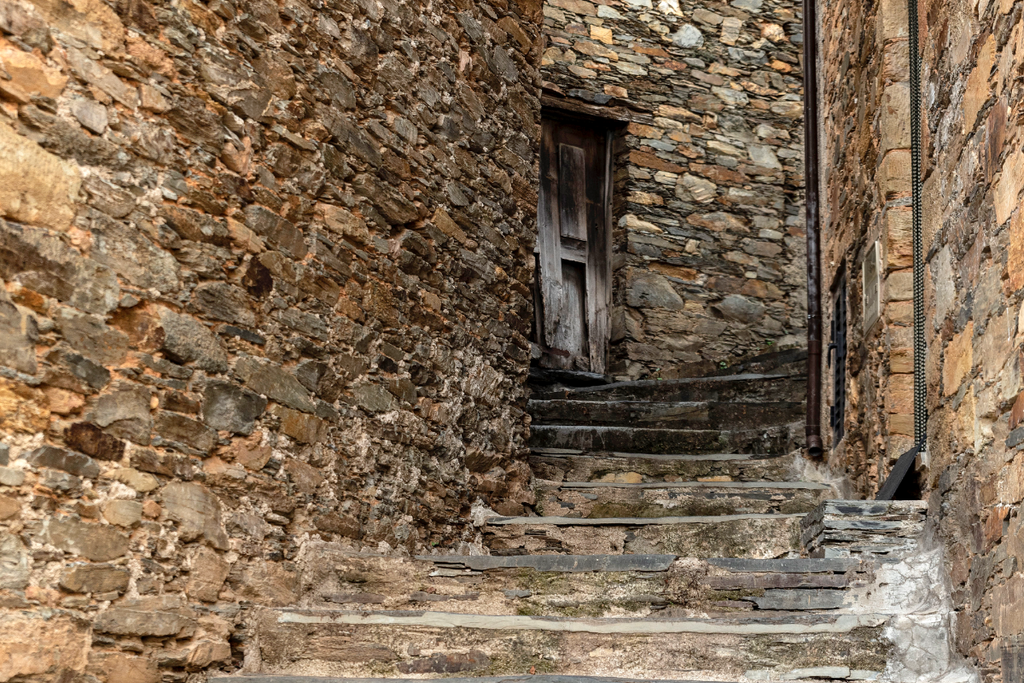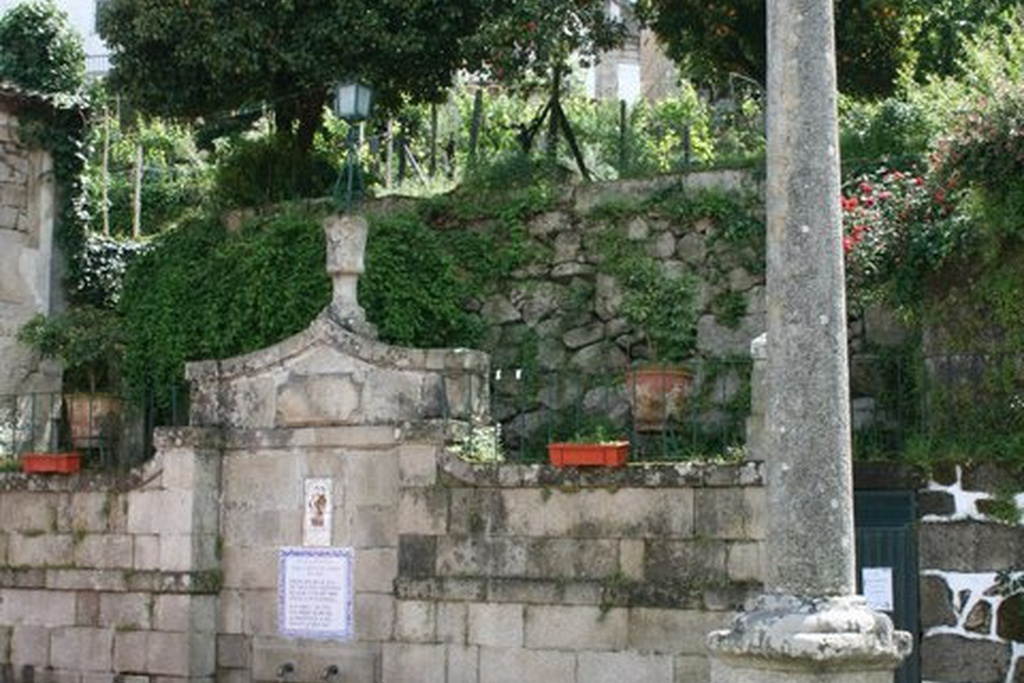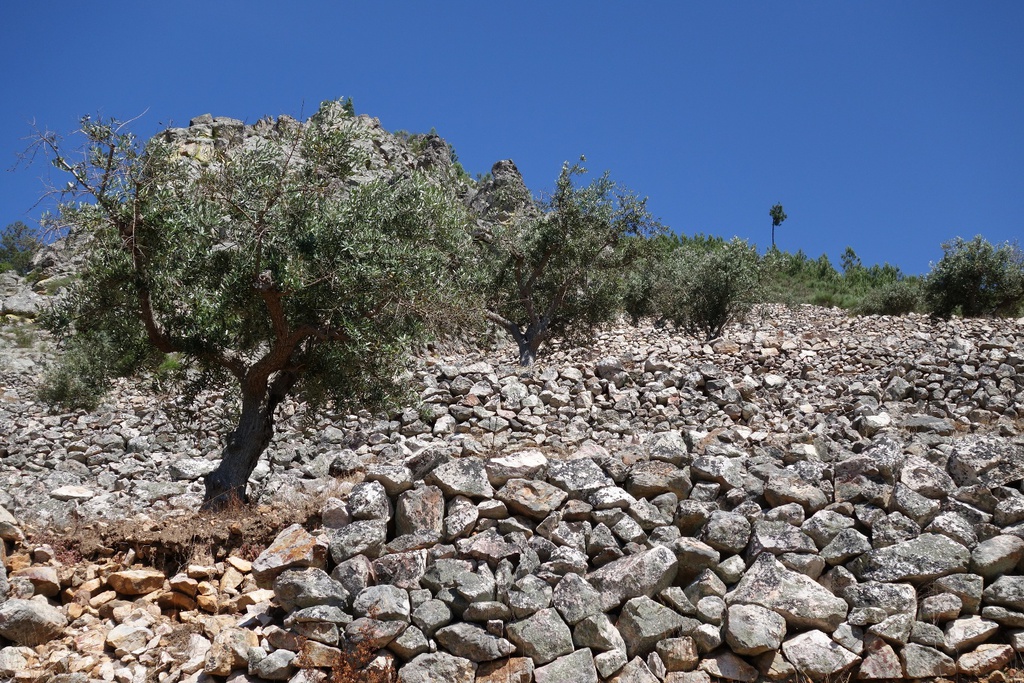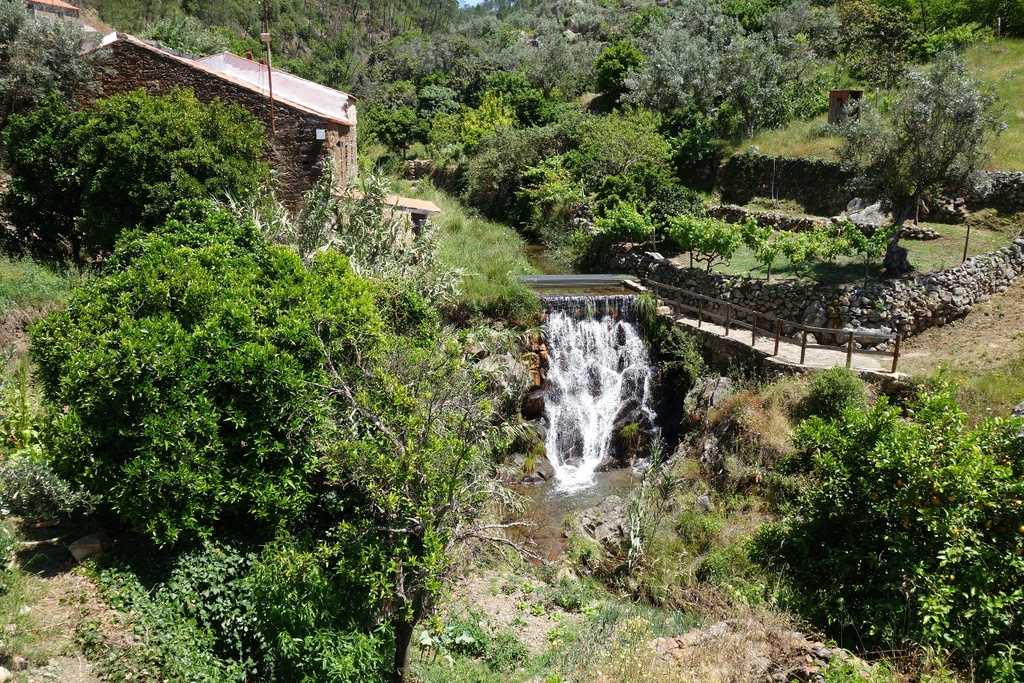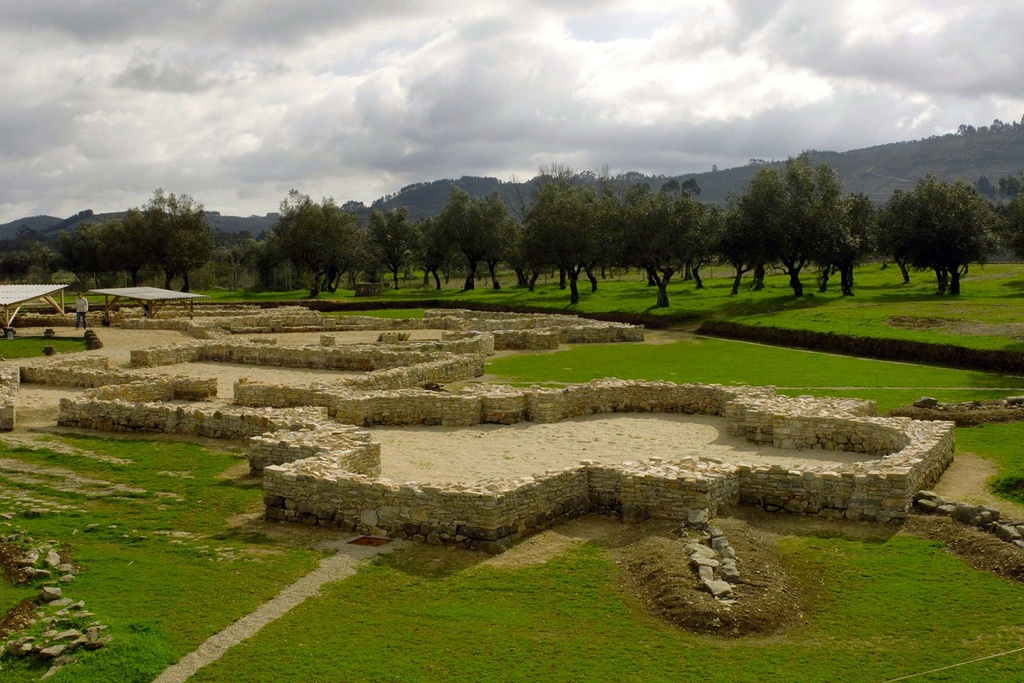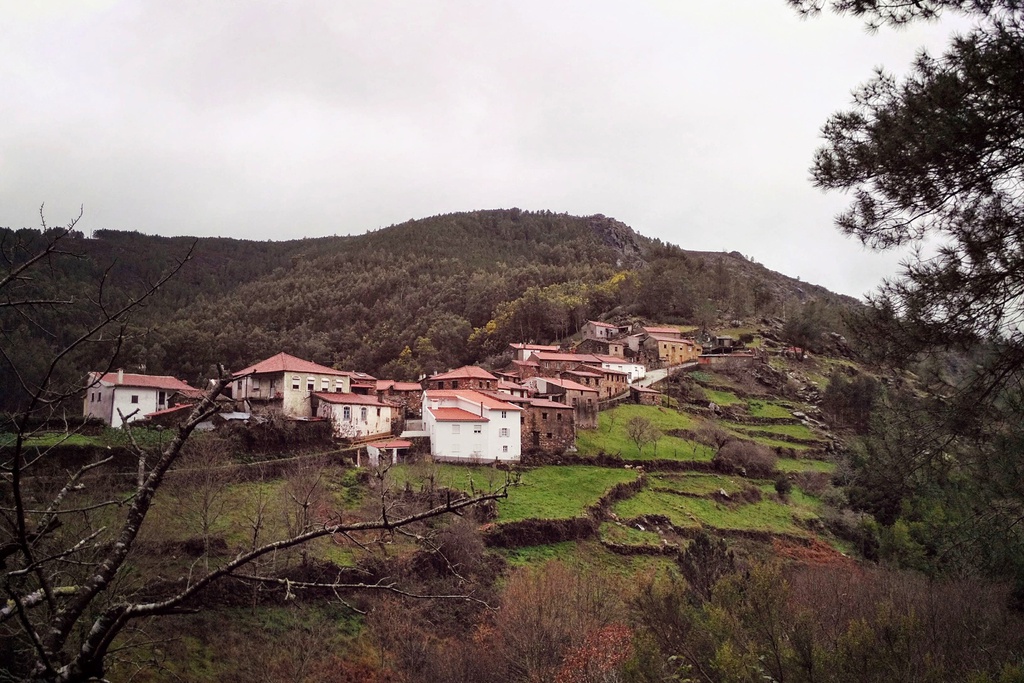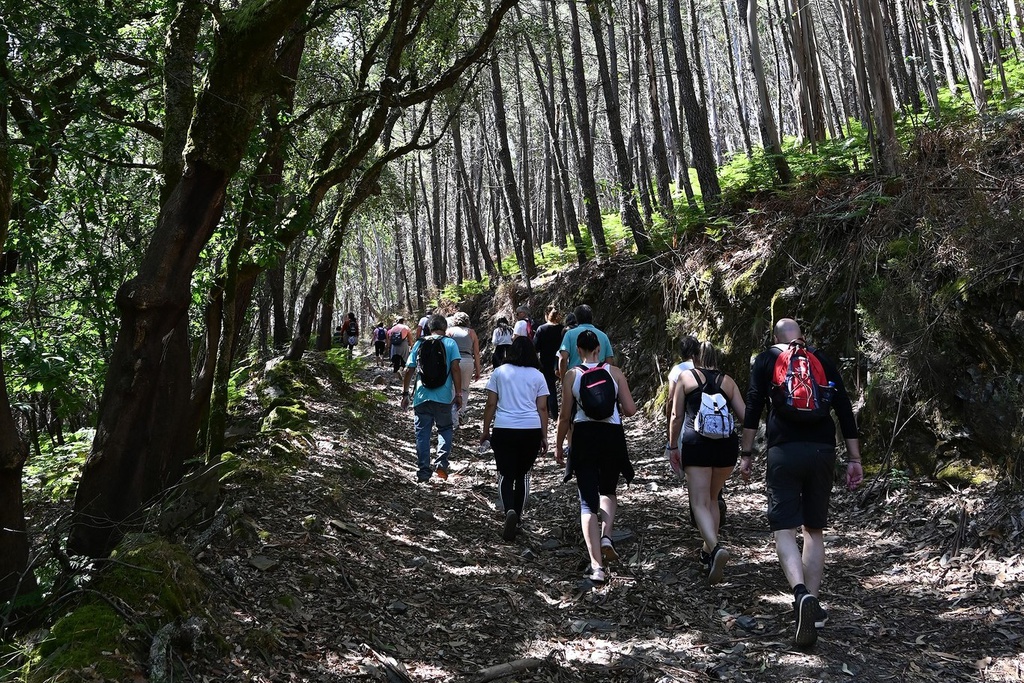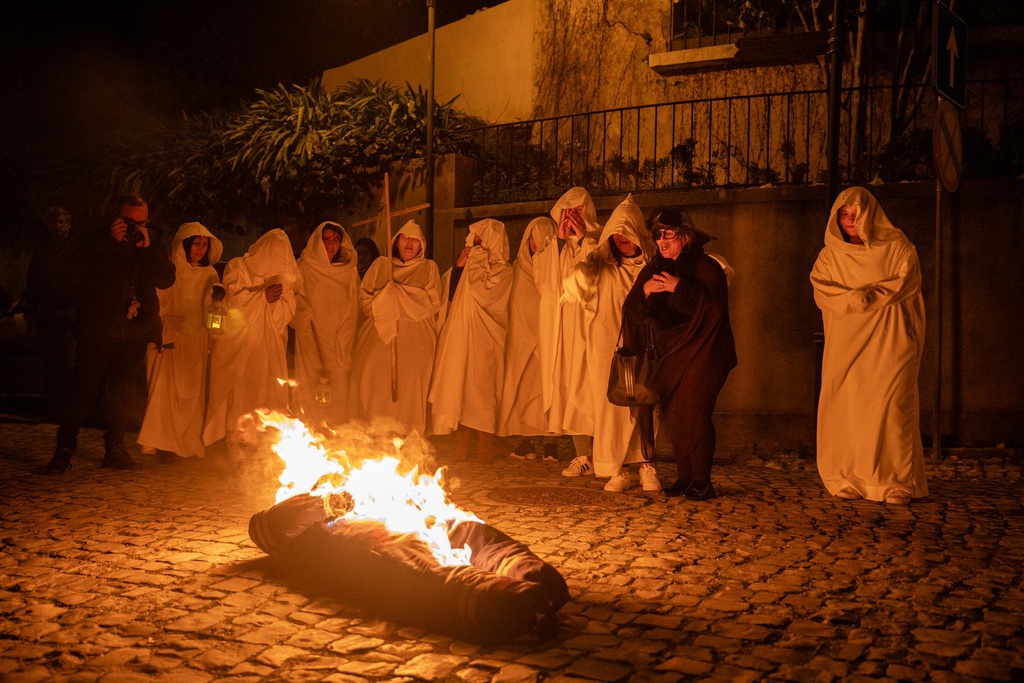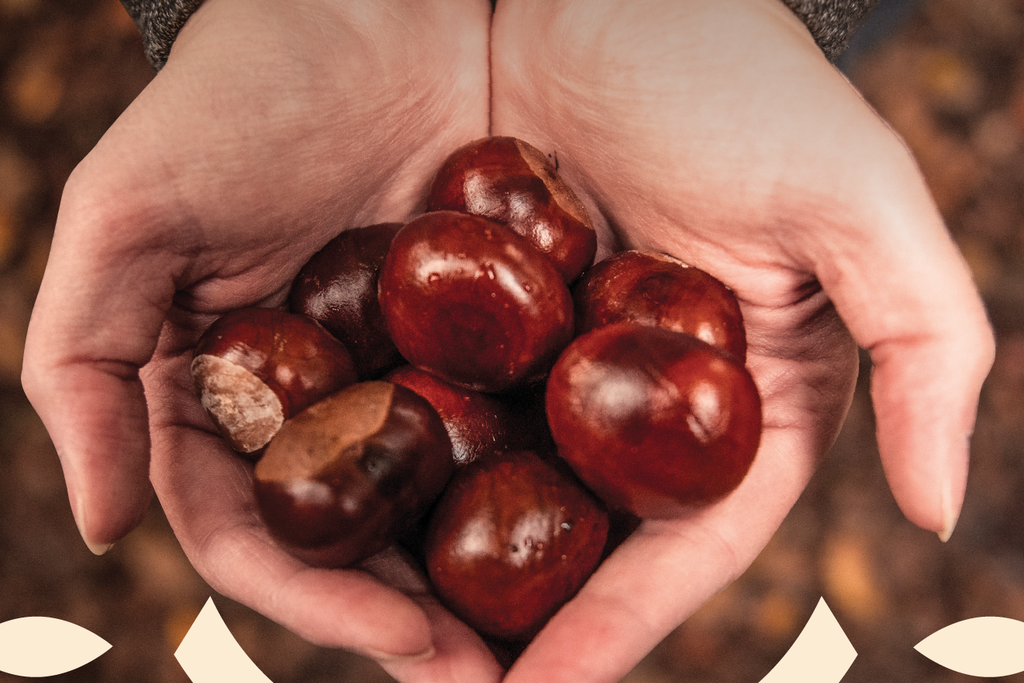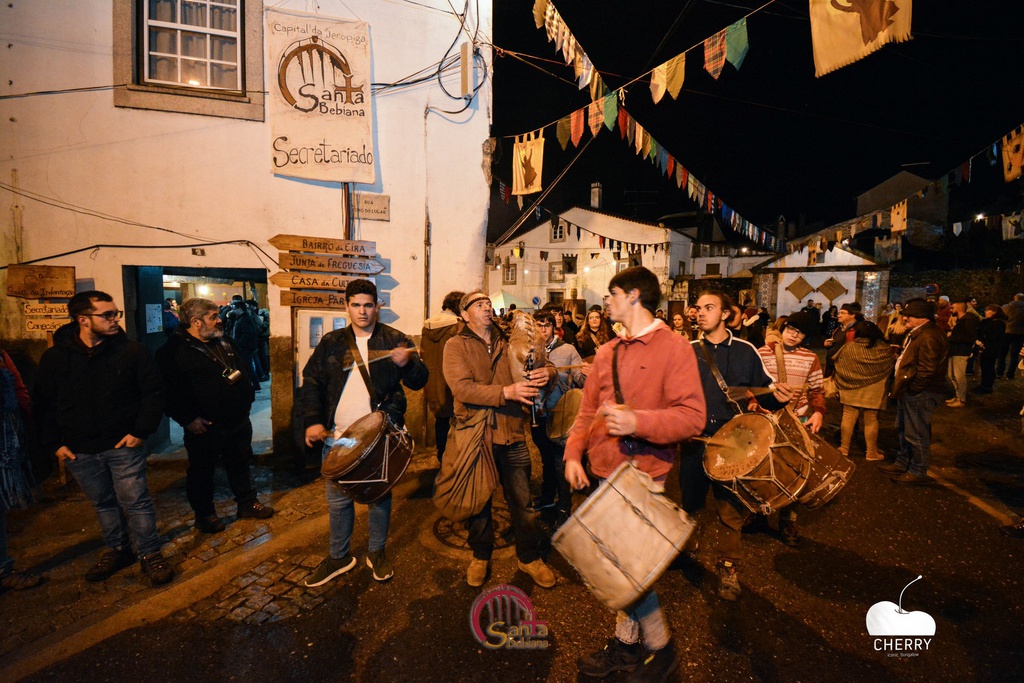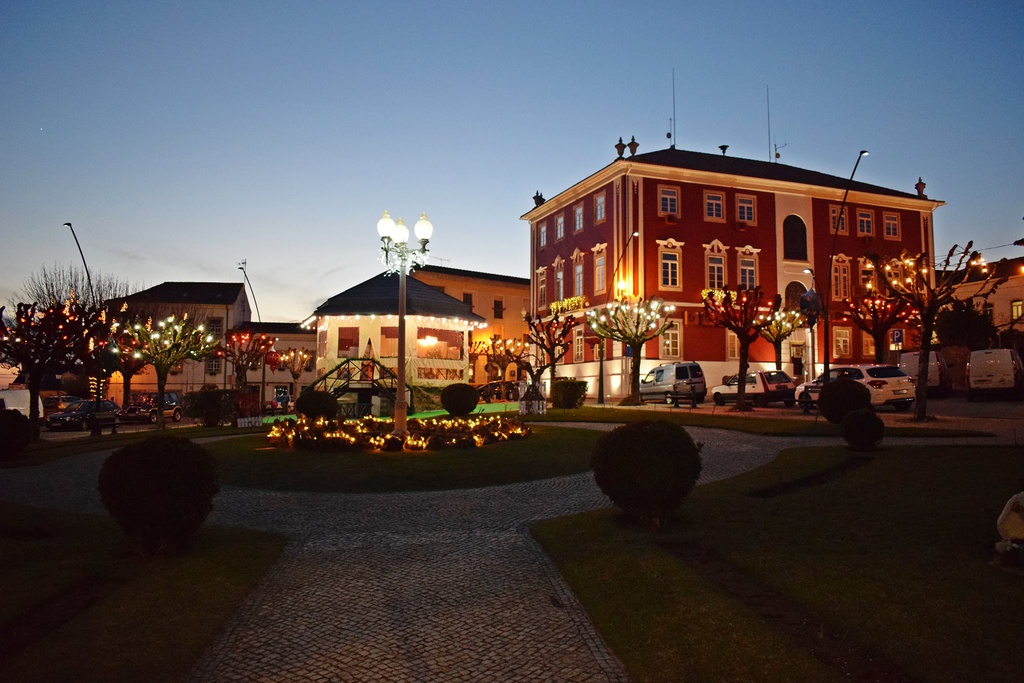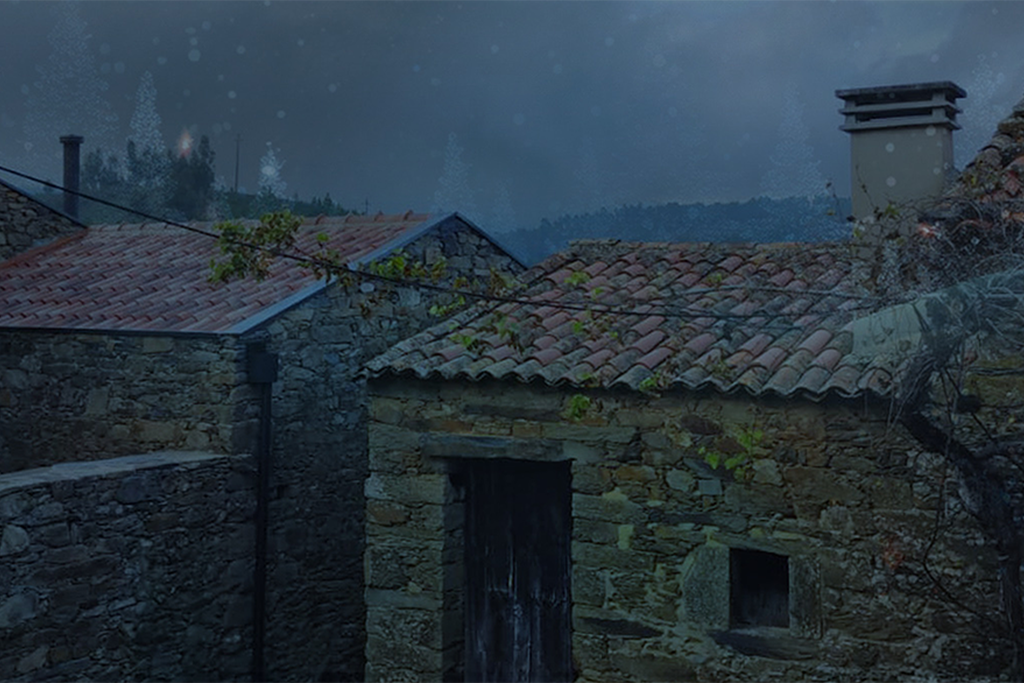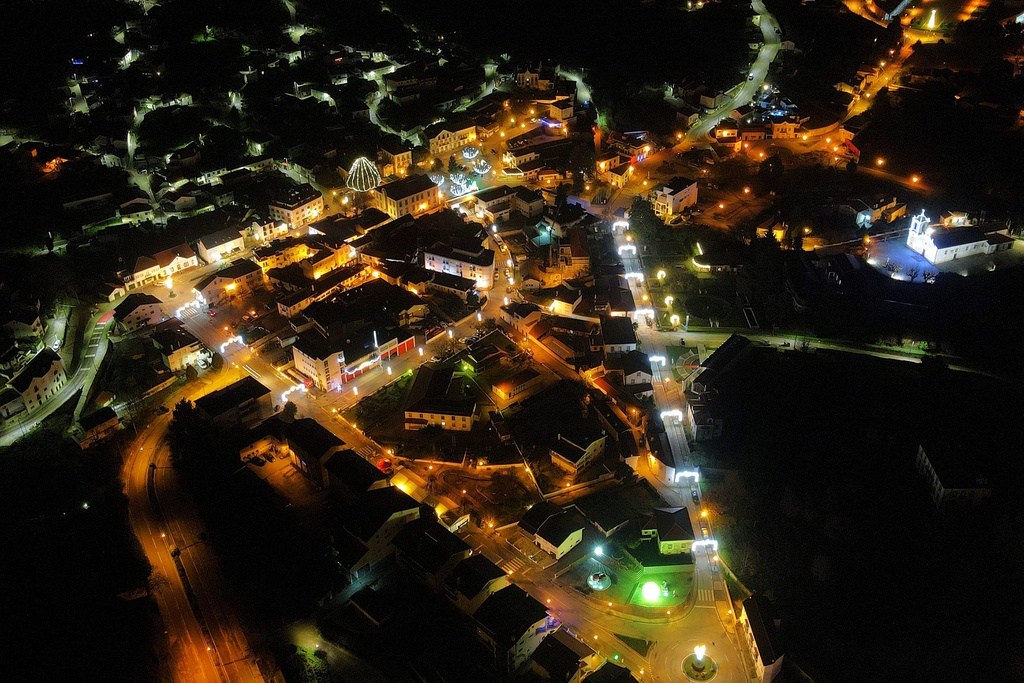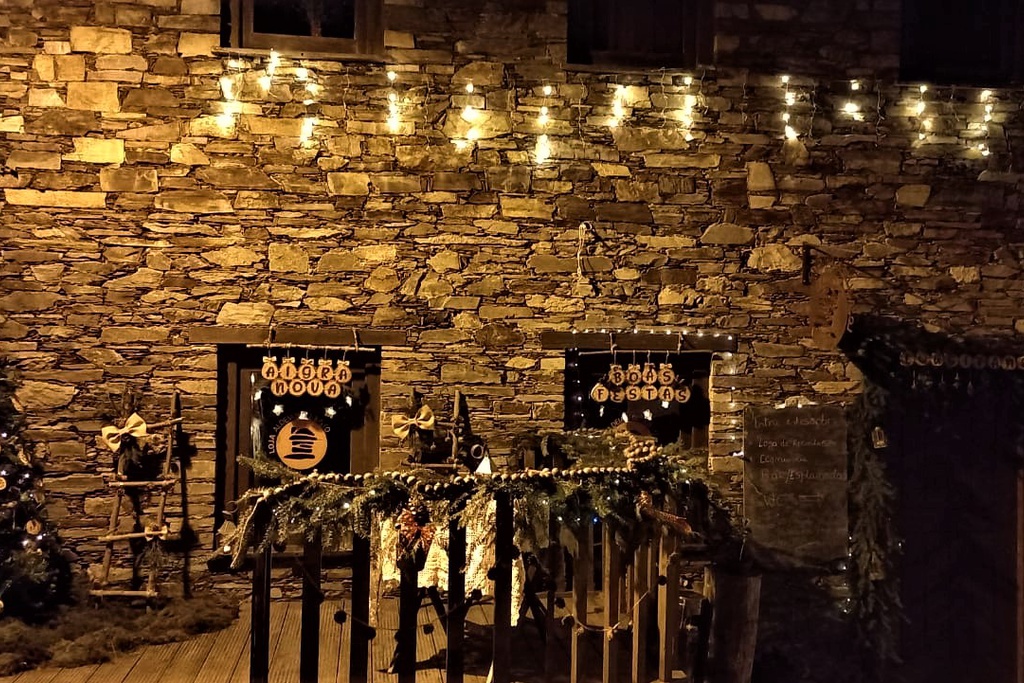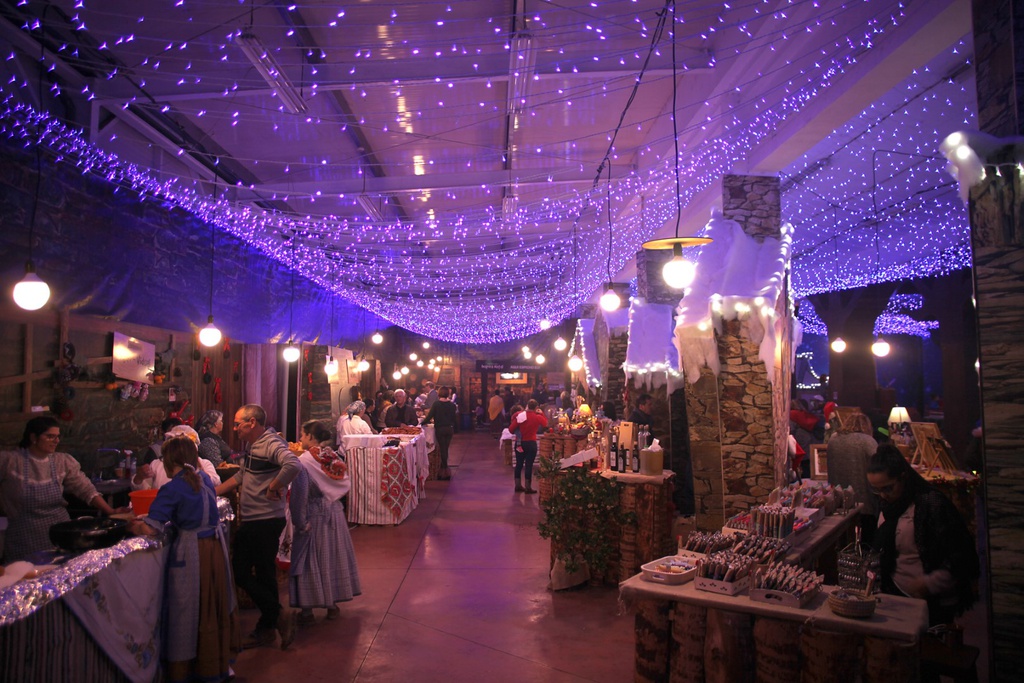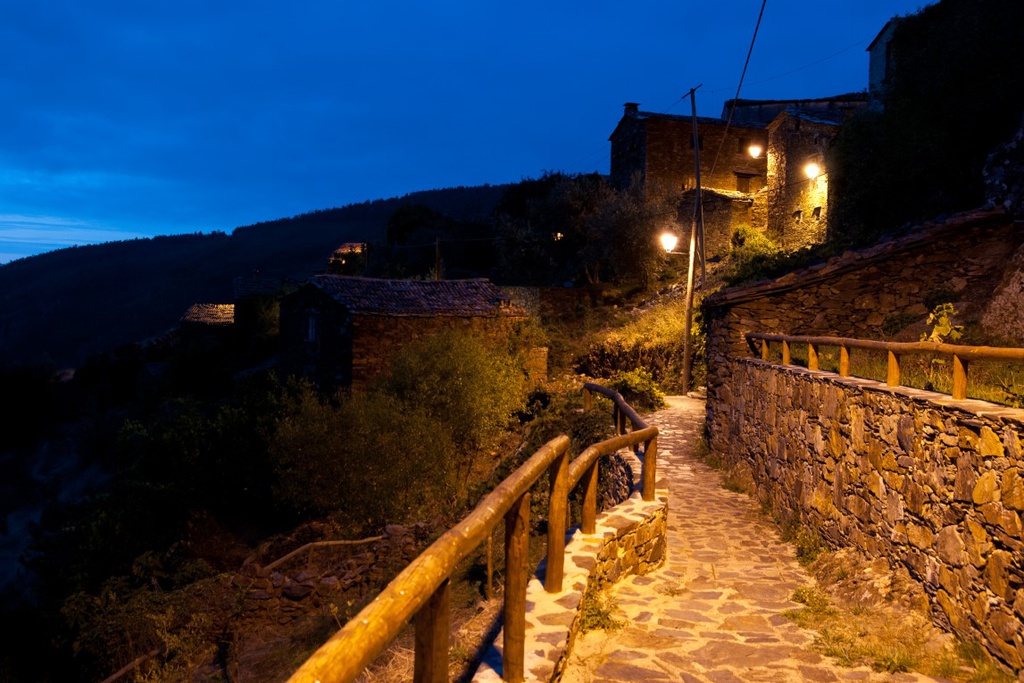It is 10am on 25th March 2018. We arrive at Álvaro, in Oleiros, which is the location for the symbolic start of the Aldeias do Xisto Classic. In two hours, 19 Portuguese and Spanish teams and about 130 cyclists will cross the Aldeias do Xisto and ride 145 kilometres to Aldeia das Dez, in Oliveira do Hospital, competing for the Liberty Seguros Trophy.
By now, the amateur cyclists taking part in the Spring Ride have already set off from the Três Entradas Bridge, also heading towards Aldeia das Dez.
Both initiatives form part of the calendar of the Cyclin' Portugal project, which has scheduled a number of initiatives in the Aldeias do Xisto up until October.
At Álvaro, the hustle and bustle, albeit somewhat serenely, is already being felt. The organisers check the final details and the vehicles that accompany the race take their positions.
As time goes by, activity increases. More cars and more people arrive. And, of course, there are yet more cyclists and bikes. Around 11 am, mass is over and the music and entertainment begin, with the presentation of the teams.
The residents of Álvaro, with olive branches and other plants in their hands - it’s Palm Sunday - spread out on the available benches and wait for the race to begin.
Rafael Freire, José Rosa Francisco and Pedro Pano are no exception. They can see everything from one corner of the Largo da Igreja, with a wonderful view of the River Zêzere. They are unanimous about the importance of the event. It brings “a lot of excitement” to a village which, like so many others, has few residents left and suffered greatly in the October fires. A topic that has, indeed, been a constant source of conversation.
In this context, events like this, that bring people and dynamism to the village, are always seen in a good light.
Raquel Freire, from the Aldeias do Xisto Shop in Álvaro, also cannot hide her enthusiasm for the event. “What I want is for people to come and get to know the village”, she stresses.
Release, departure, breakaway
The start time is coming ever-closer and the cyclists start to position themselves behind the start tape, which is ceremonially swept aside at the scheduled moment.
We too get into Lourenço the driver’s car, together with the commissioner Isabel Fernandes. It is she who will signal the start proper, but we must first make sure that everyone is ready: commissioners, timekeepers, neutrals (cars that provide support, regardless of the team in question), motorbikes, sweeper car.
In the car, there are three radios that guarantee and provide communication, which is crucial and is constant throughout the whole race. A general one, which everyone can hear, including the commentator at the finish line, and two internal ones.
Then the procession to the actual start begins, at a slower and more controlled pace. You have to make sure that all cyclists are in the peloton. The commissioner, known for her sternness and nicknamed the “Iron Lady”, stands with her top half sticking out through the roof of the car. She talks to the athletes, who respond and interact with her in an animated yet calm way.
Around 12:15, Isabel gives the signal for the real start. Ensuring compliance with the rules, controlling safety distances between cars, motorbikes and cyclists and avoiding situations that might provide advantage and/or disadvantage are her tasks at hand.
Almost immediately, a group of 16 cyclists, representing 9 teams, pull away from the peloton. Now we need to look for reference points, communicated by radio, to ascertain the time difference between the breakaway group and the peloton.
We find ourselves travelling at high speed, considering the steep and bendy route, and there is the strong smell of clutch burning. Lourenço tells us that he is travelling at 80 kph in second gear, to ensure that he can stop the car in an emergency. “Drivers have to be well chosen and know the rules of the race well”, he says, drawing agreement from Isabel. Lourenço has been “at it” for 25 years. Isabel has been a commissioner for 30 years. There is therefore no shortage of experience in this car. However, there is still plenty of adrenaline and butterflies in the stomach.
After an hour’s racing, 39 kilometres have been covered. Team directors are now allowed to approach cyclists and give instructions, but always with the prior permission of the commissioners.
Two hours of the race and 60 kilometres have been covered. Another hour and we were just over 30 kilometres from the finish line.
And the winner is...
Even with another 20 km remaining, 5 runners stand out: Óscar Hernández (Aviludo-Louletano-Uli), Daniel Mestre (Efapel), Domingos Gonçalves (Rádio Popular-Boavista), Joni Brandão (Sporting-Tavira) and Raúl Alarcón (W52-FC Porto).
The finish line is at the top of a third category climb, 3.2 kilometres long and with the last few hundred metres cobbled.
This is where Daniel Mestre, Joni Brandão and Raúl Alarcón move forward, crossing the finish line in this order, after Daniel Mestre lays down his well-known final push for the line.
Victory in this third and last stage is for the “home team”, since Efapel is sponsored by the Aldeias do Xisto. In the general classification, the Spaniard Óscar Hernández is the winner of the Liberty Seguros Trophy.
André Carvalho (Liberty Seguros-Carglass) won the Liberty Seguros Trophy youth classification.
At the finishing line, dozens of people await the cyclists, who receive tumultuous applause as they go by. It’s like that in Aldeia das Dez and, generally throughout the Aldeias do Xisto. It is a natural and firm principle in these communities to receive people well and affectionately, and show the best that the area has to offer.
Spring Ride with 100 taking part
Aldeia das Dez also hosted the arrival of the Spring Ride, aimed at all bicycle lovers who wanted to join the Classic party and celebrate nature’s reawakening. While waiting for the professional riders, participants took the opportunity to socialise and recharge their batteries.
Margarida Pinto, from Canas de Senhorim, was part of the group of about 100 participants that covered the 45 kilometres. In the company of a group of friends, she took the opportunity to revisit the landscape of her childhood. “Yesterday I planted trees and today I took part in the ride. We should all come and help”, she argues.
“Fabulous and extraordinary”. This is how Rosário Figueiredo describes the passage of the Aldeias do Xisto Classic and the Spring Ride in Aldeia das Dez. Although she lives in Coimbra, she makes a point of spending every weekend in the village where her family comes from. “Anything that brings people here brings added value, both for local commerce and for the recognition of this heritage”, she ponders, inviting everyone to come and get to know the village.
On a day of celebration, however, it is impossible to forget the fires that scarred the region the previous October. Rosário laments the tragedy, but chooses to look ahead and draws attention to the traces of “agricultural archaeology” that the fire has left uncovered on the terraces. “These are the stories of many generations”, she says, stressing the need to publicise and value this heritage.
The Aldeias do Xisto Classic and the Spring Ride are initiatives which are part of Cyclin' Portugal, which recognises the Aldeias do Xisto as an area of excellence for the practice of both competitive and leisure cycling.
The project is the result of a protocol between Aldeias do Xisto, the Central Portugal Tourism and the Portuguese Cycling Federation and is supported by the Secretary of State for Tourism. It also involves local authorities and economic stakeholders as part of a strategy to internationalise the destination and make it well-known for being “bike friendly”. Among other aspects, the strategy includes the certification of routes, equipment and services, the construction of cycle-based, integrated tourism product and the inclusion of its offer in communication and reservation channels.
Text: Andreia Gonçalves


